
How to replace the front brakes 2011-2017 Toyota Camry
To replace the front brakes on your Camry it couldnt’ be easier. You will need to open the hood, lift the vehicle, take off the wheels and follow the next steps described below. You can follow this tutorial of 19 chapters in 60 minutes. Take your 17 mm wrench and your ratchet and let’s get started!
Duration
60 minutes
Number of steps
19
Difficulty out of 5
2
Average savings
$70
Parts You Will Need
Tools You Will Need
Step-by-Step Installation
Chapter 1:
Open the hood
Step 1/2
Turn off your vehicle’s ignition, set the parking brake, pull the hood release handle and open the hood.

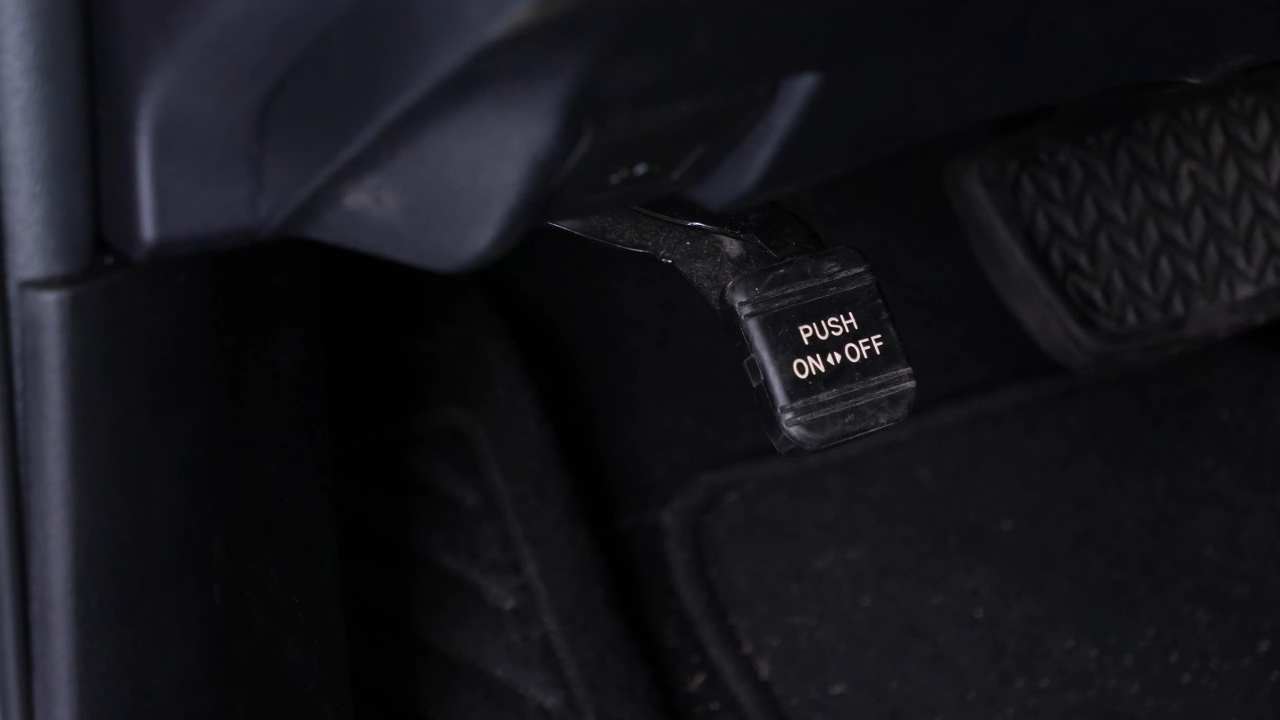
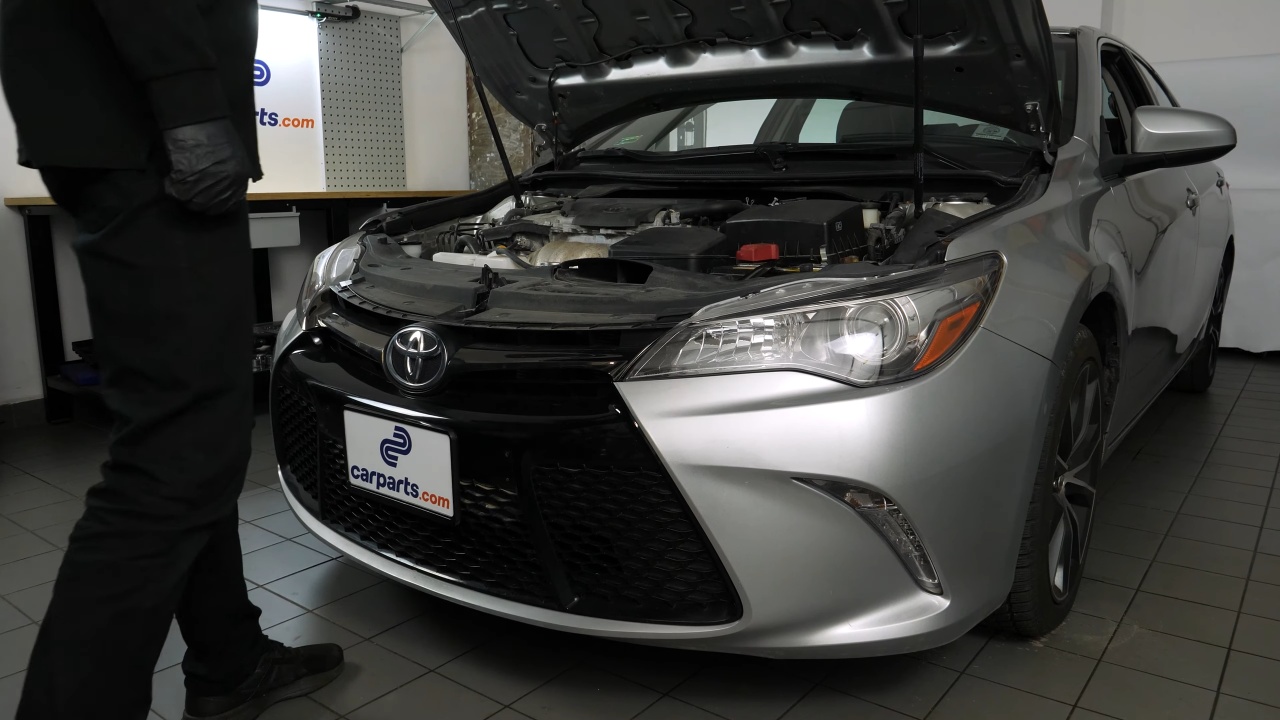
Chapter 1:
Step 2/2
Open the brake fluid reservoir. Loosen the stud bolts on the front wheels.

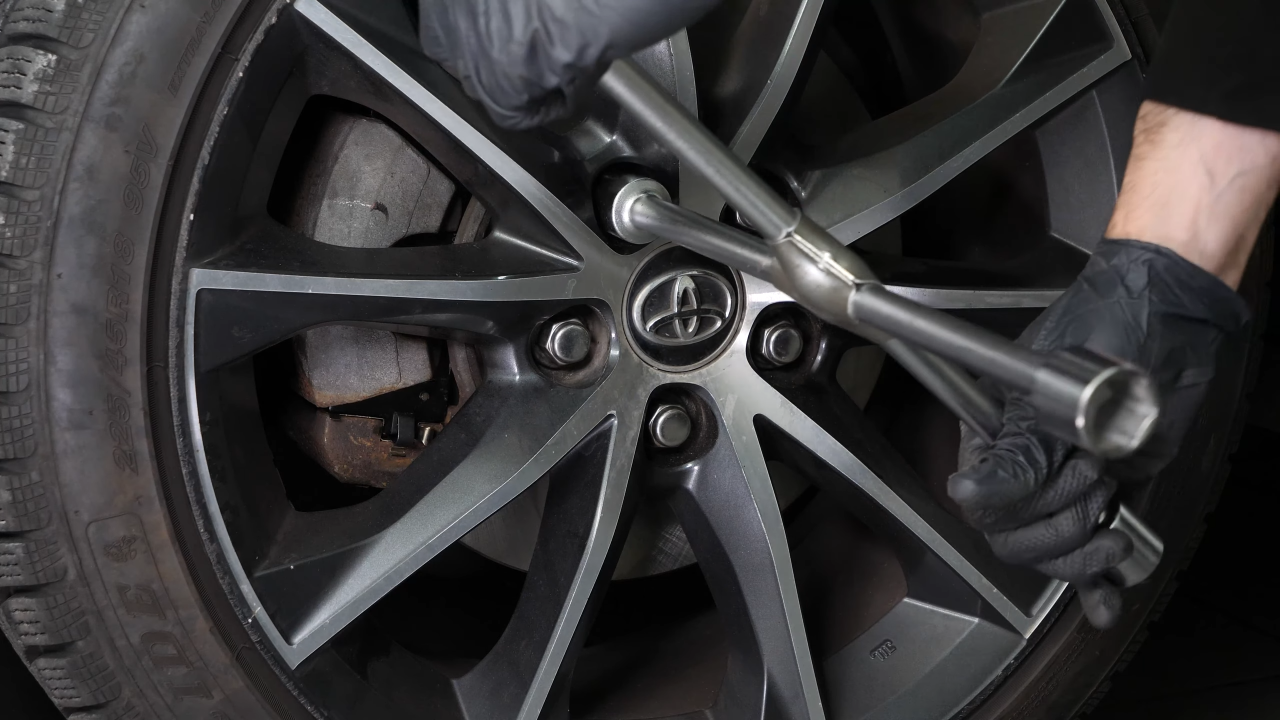
Chapter 2:
Lift the vehicle
Step 1/2
Lift the front of your vehicle. Place the vehicle on the jack stands.


Chapter 2:
Step 2/2
Don’t forget to put the wheels under the vehicle!

Chapter 3:
Retract the piston
Step 1/3
Turn the disc outwards, this will facilitate the following steps.
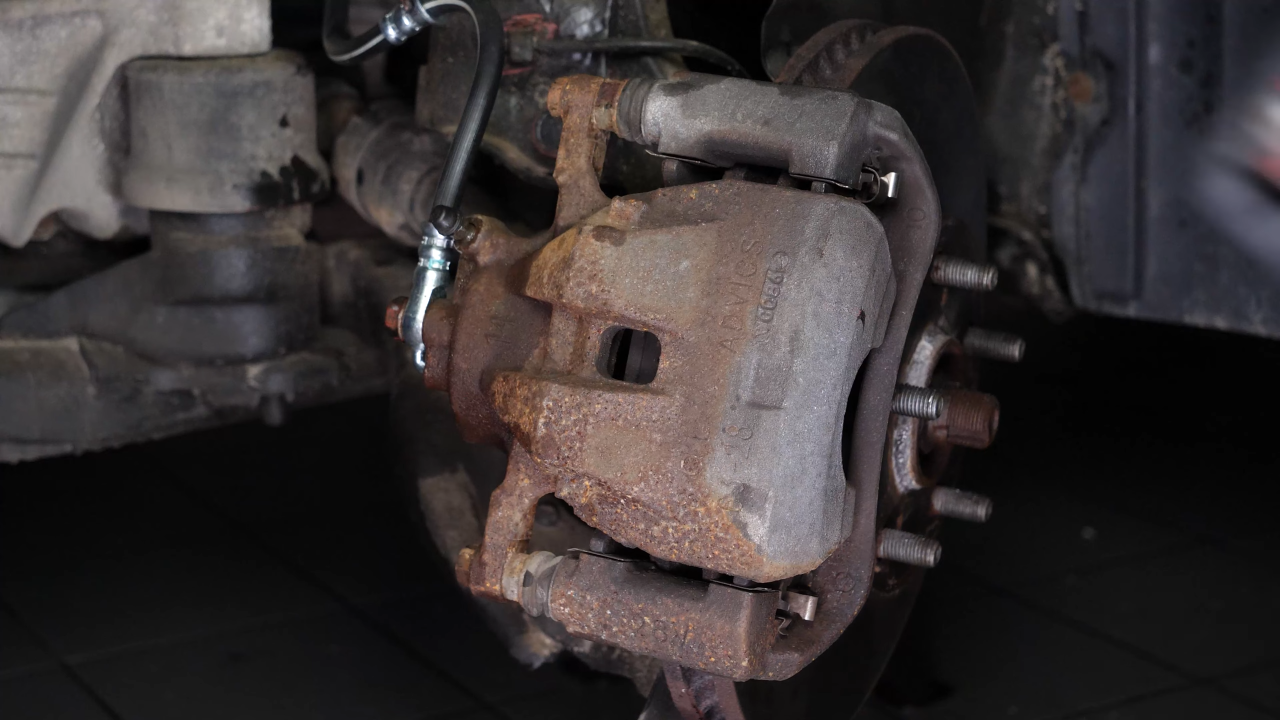
Chapter 3:
Step 2/3
Insert a flat head screwdriver into the opening of the brake caliper. Lift it off using the screwdriver as a lever by pulling it towards you.
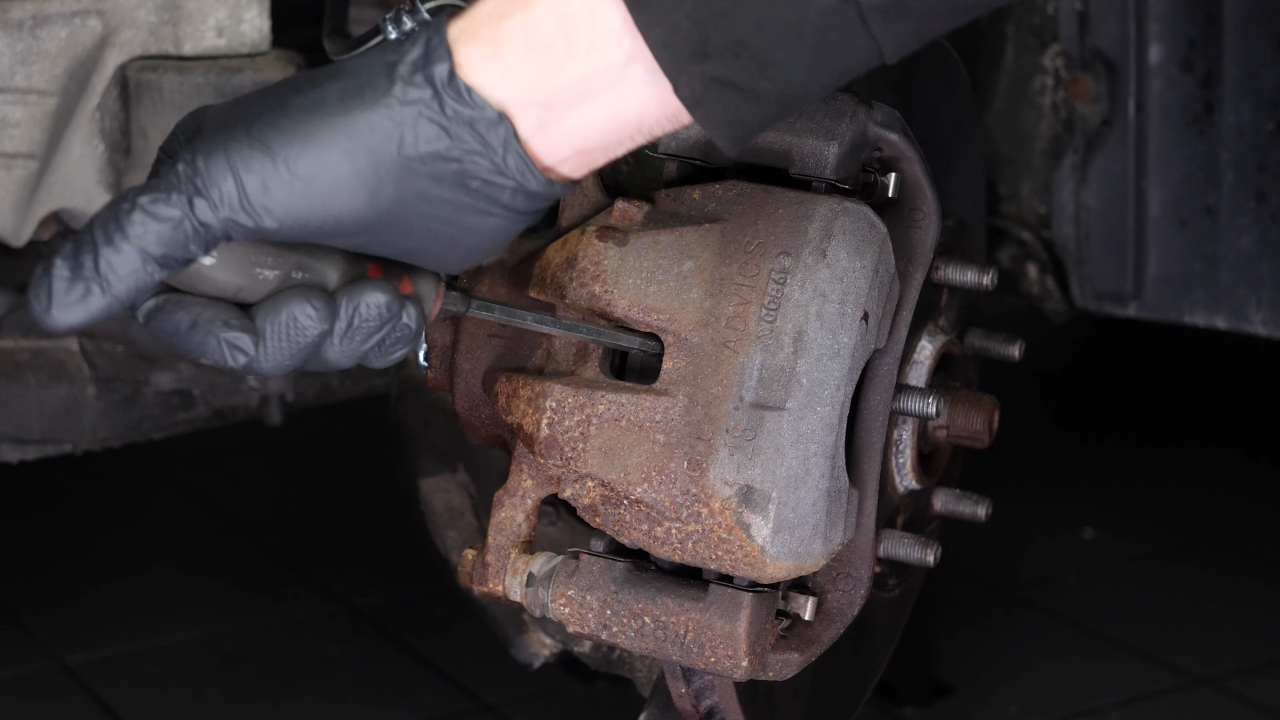

Chapter 3:
Step 3/3
This will cause the piston to retract, so that the caliper can be removed more easily for the next steps.
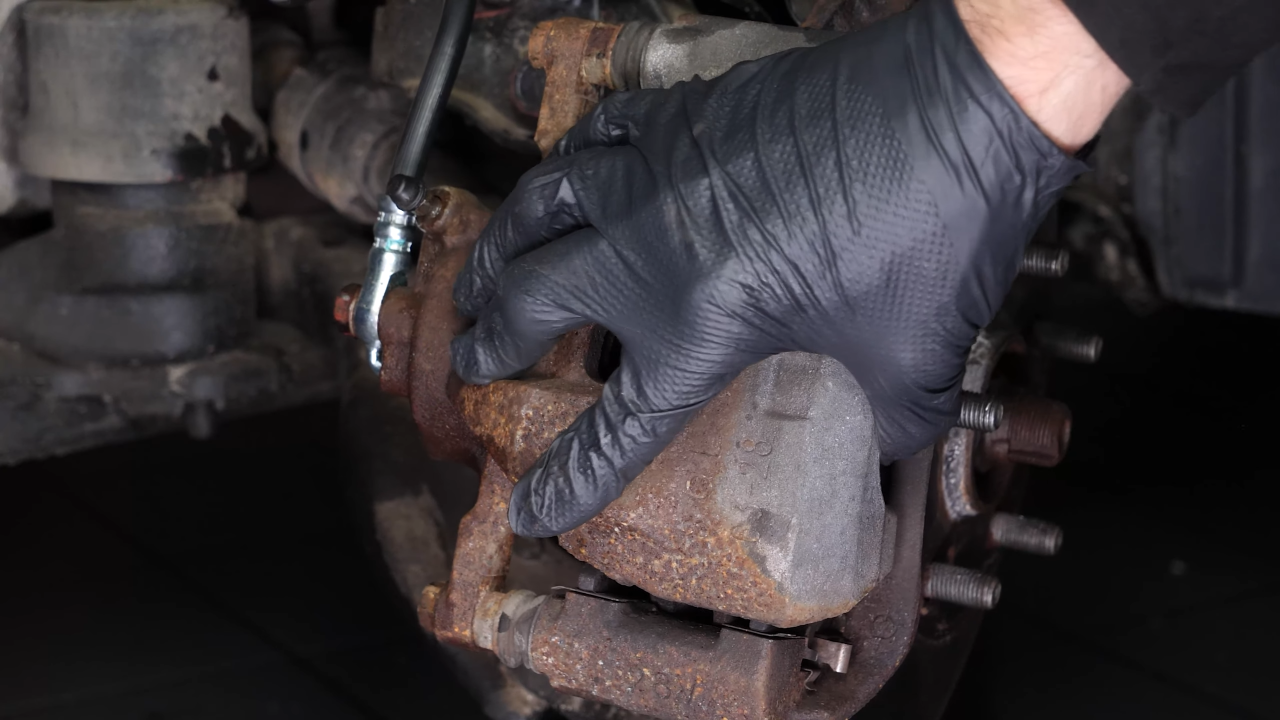
Chapter 4:
Loosen the slide pins
Step 1/2
With a 14mm wrench, unscrew the upper slide pin. Sometimes you have to keep the locknut from turning by holding it with your fingers or a 17 mm wrench.

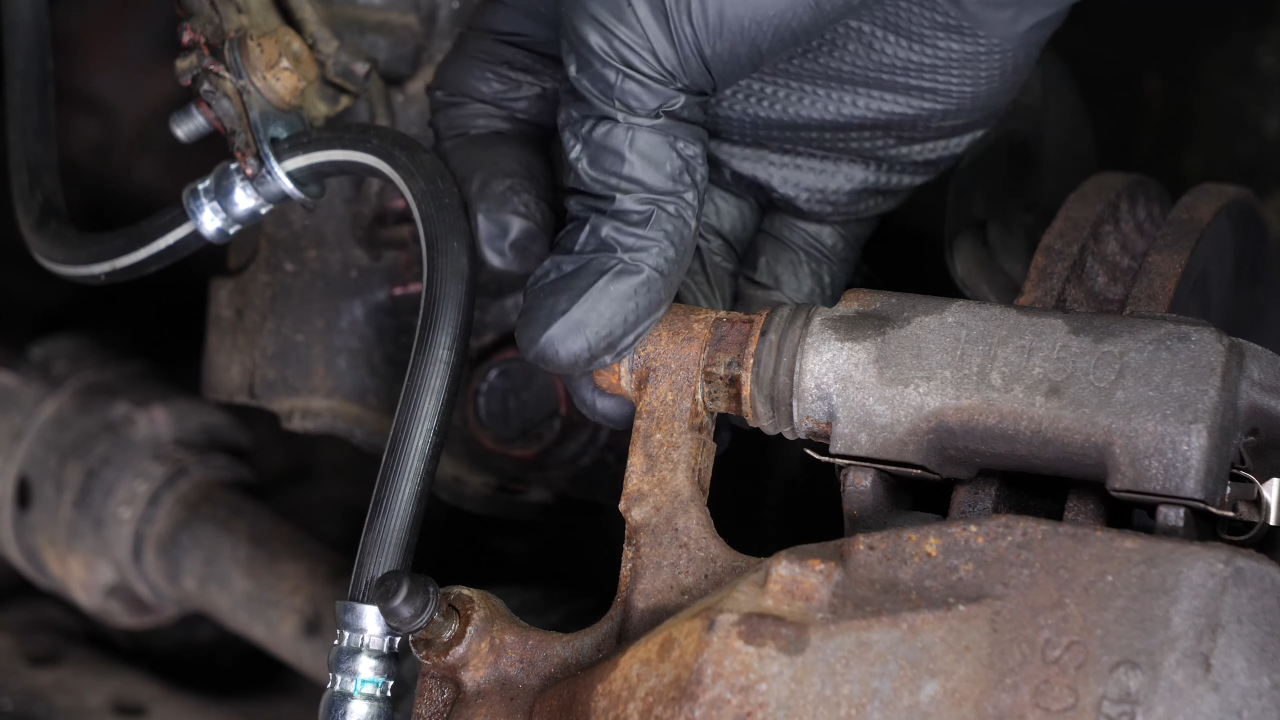
Chapter 4:
Step 2/2
Repeat this process with the lower slide pin. Finish unscrewing by hand.
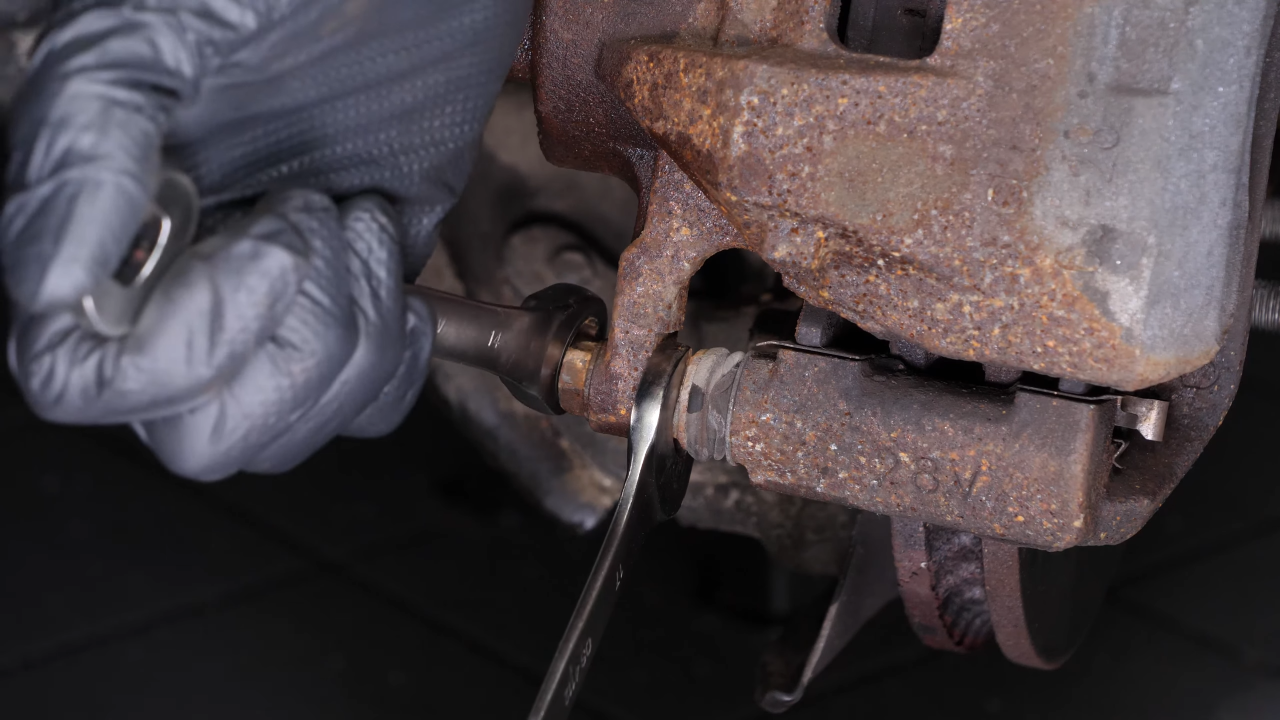
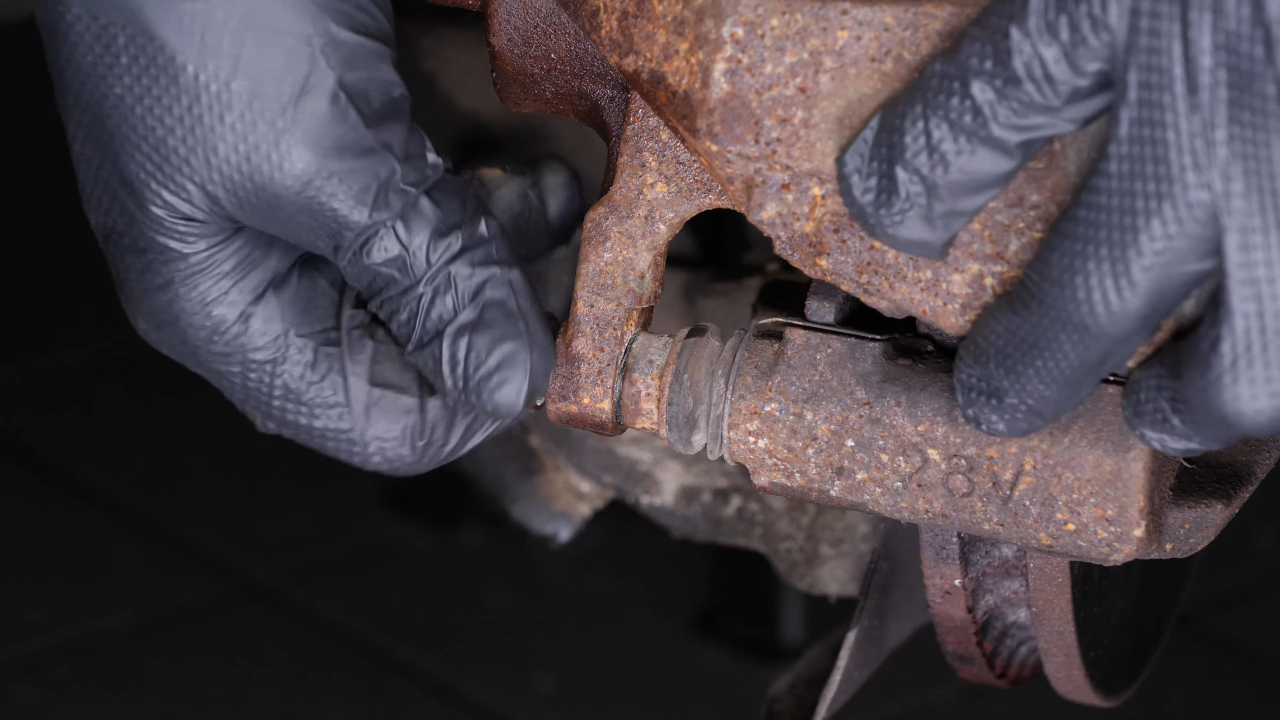
Chapter 5:
Hang the brake caliper on the strut
Step 1/1
Tip: attach a piece of electrical cable, or a hook, to one of the strut spring coils You can now remove the brake caliper and hand it to the previously installed hook.

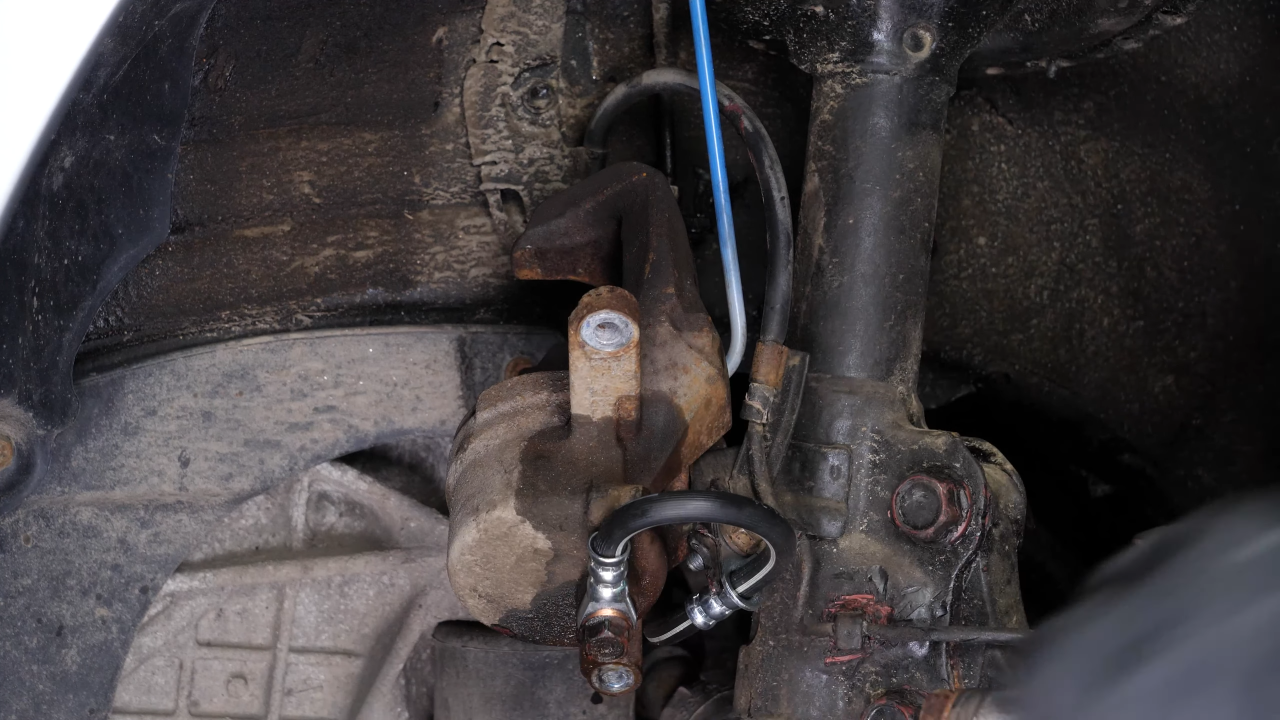
Chapter 6:
Remove the brake pads
Step 1/3
Remove the clips holding the pads.


Chapter 6:
Step 2/3
Remove the brake pads. You can use a screwdriver to help you.


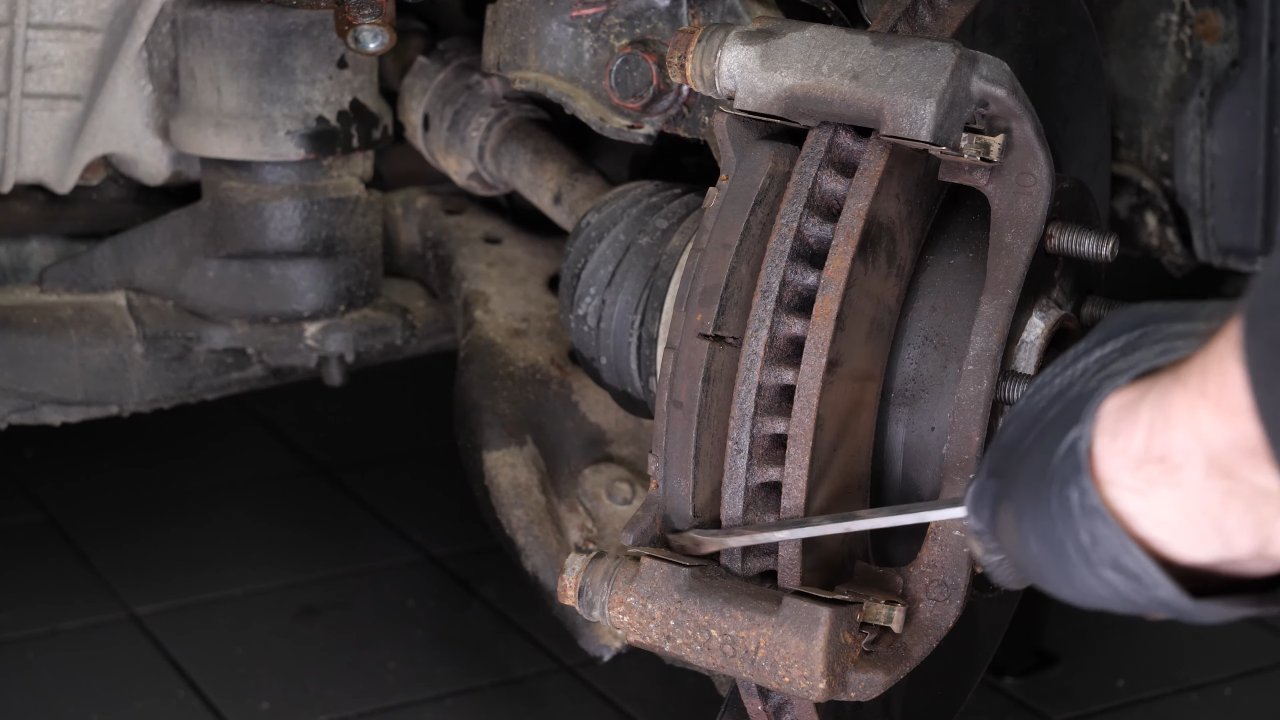
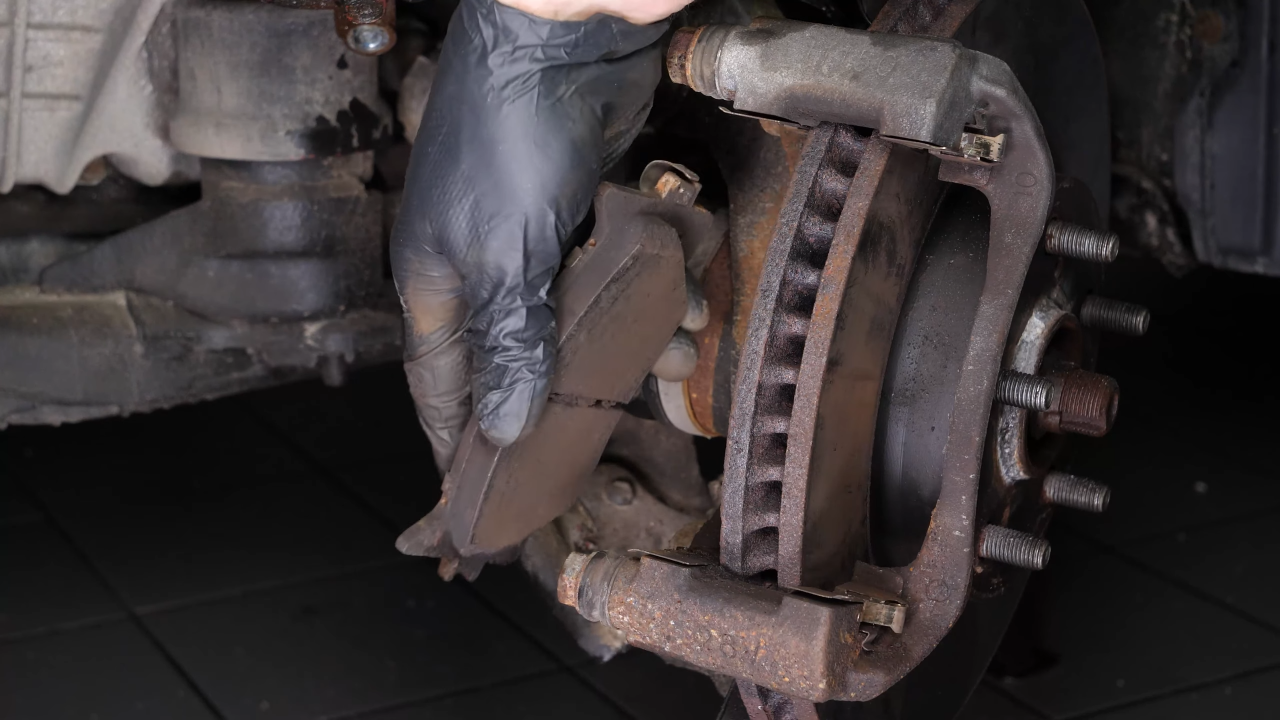
Chapter 6:
Step 3/3
Using a flat head screwdriver, remove the anti-rattle clips.



Chapter 7:
Remove the brake caliper mount
Step 1/2
Using a socket wrench and a 17mm socket, unscrew the two holding screws on the caliper mount. Depending on the state of the bolts on the caliper mount, it may be necessary to use a hammer to loosen them.

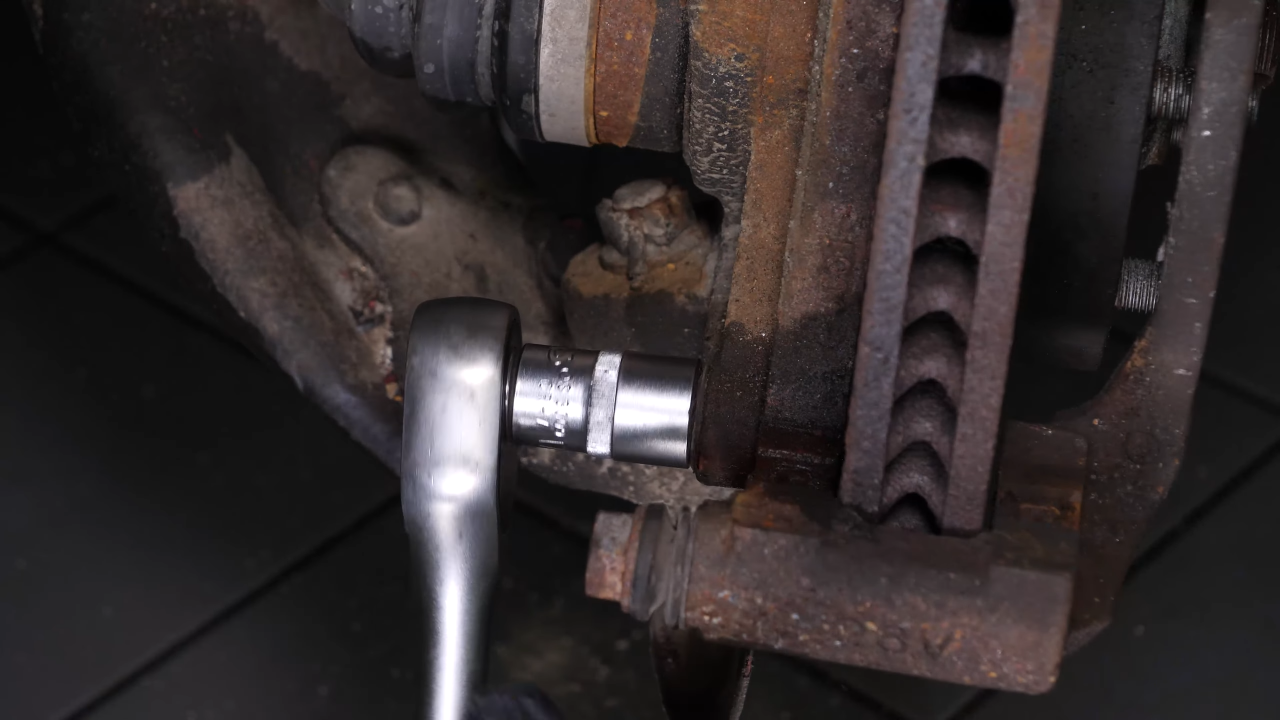
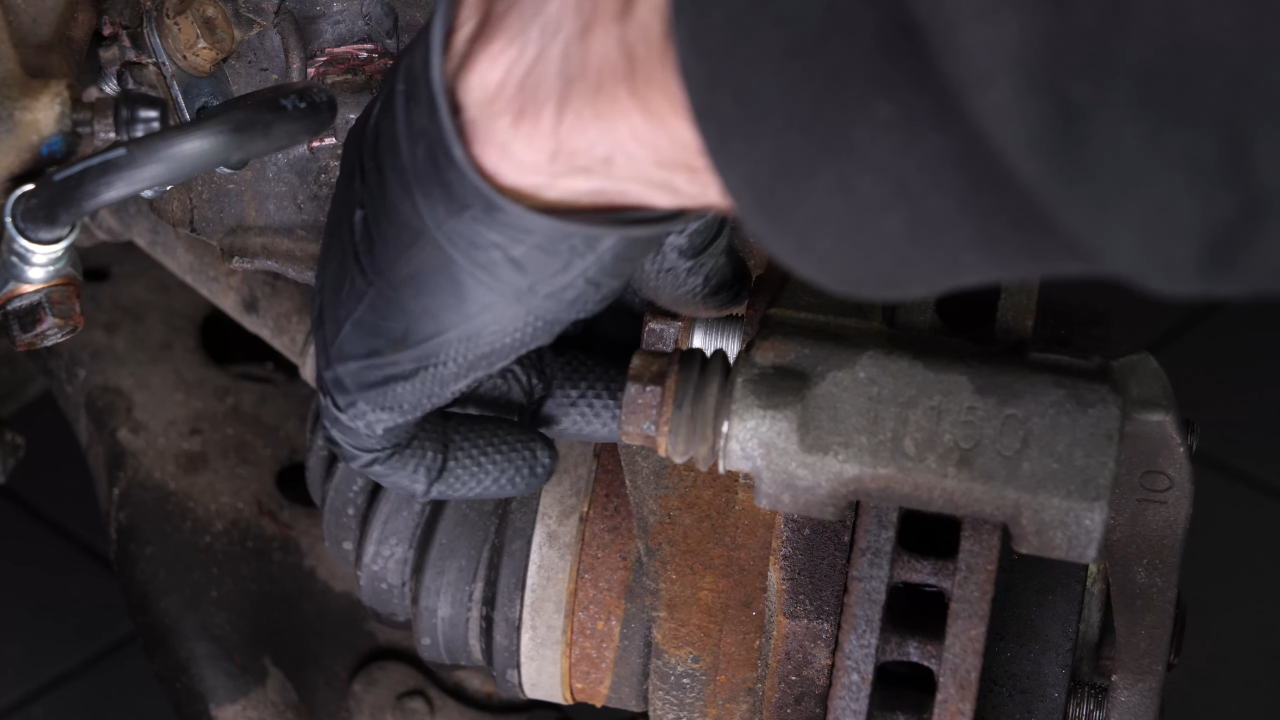
Chapter 7:
Step 2/2
Remove the caliper mount.


Chapter 8:
Remove the brake disc
Step 1/1
Sometimes the disc may get stuck on the hub, if this happens, use a hammer to remove it. Finally, remove the disc.
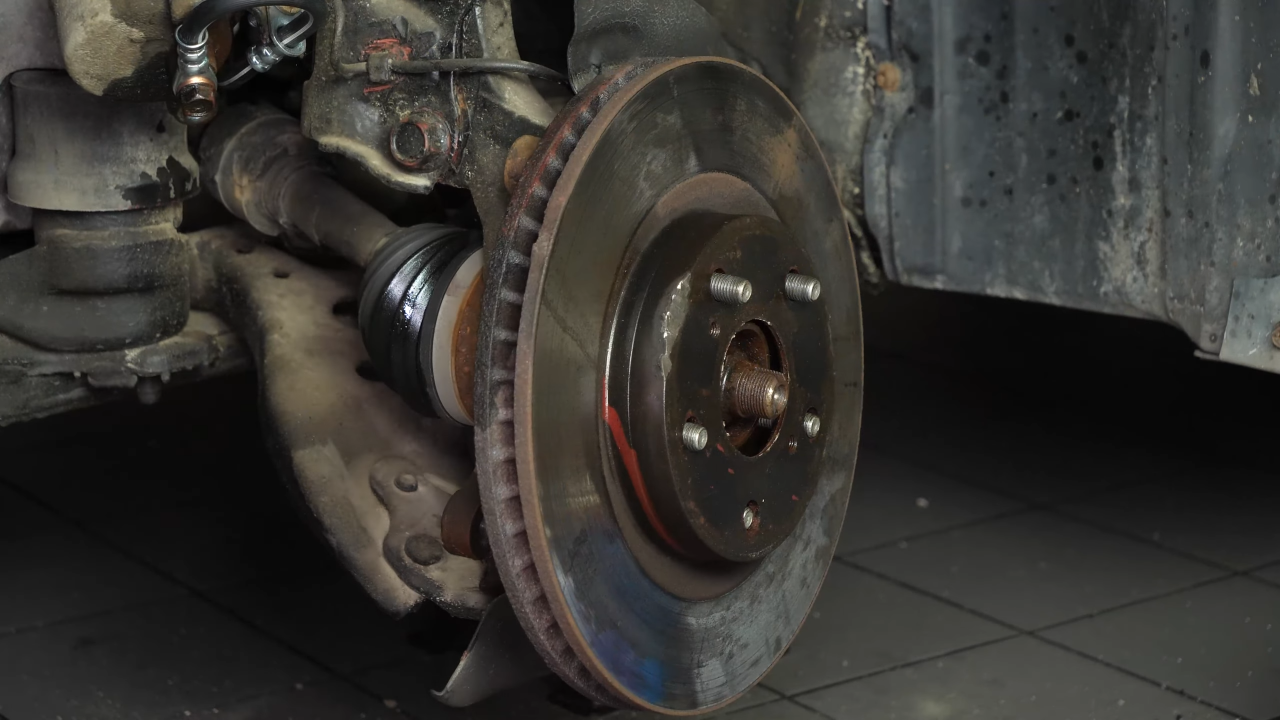
Chapter 9:
Clean
Step 1/2
Clean the wheel hub with a wire brush.

Chapter 9:
Step 2/2
Before installing the new disc, it is vital to clean it using brake cleaner and paper towels to take off the storage paraffin. If your new disc is coated, you can place it directly onto the wheel hub.
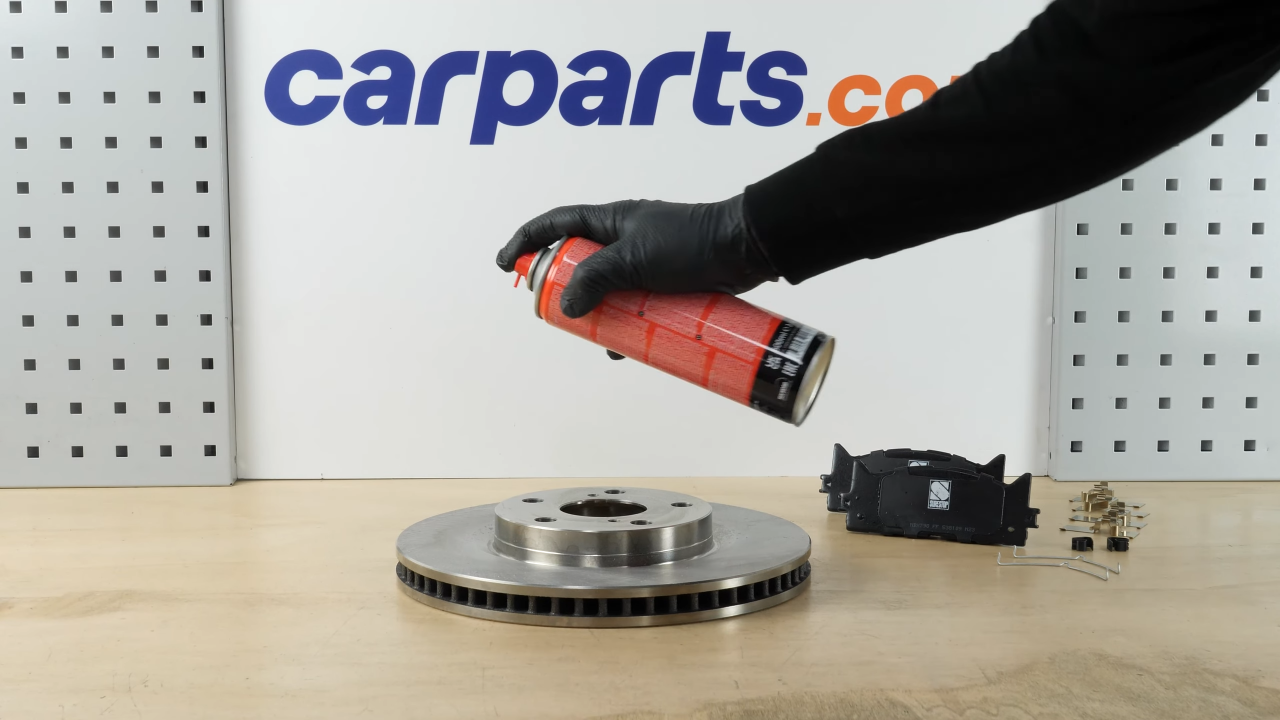

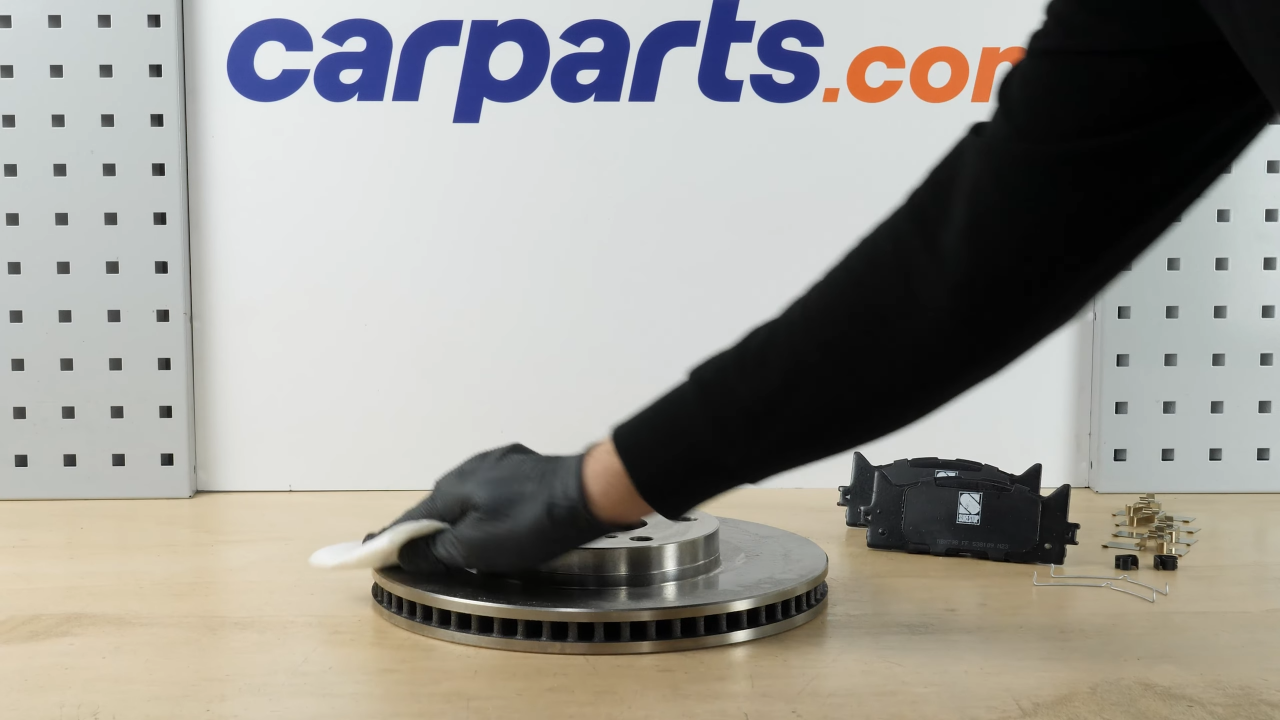
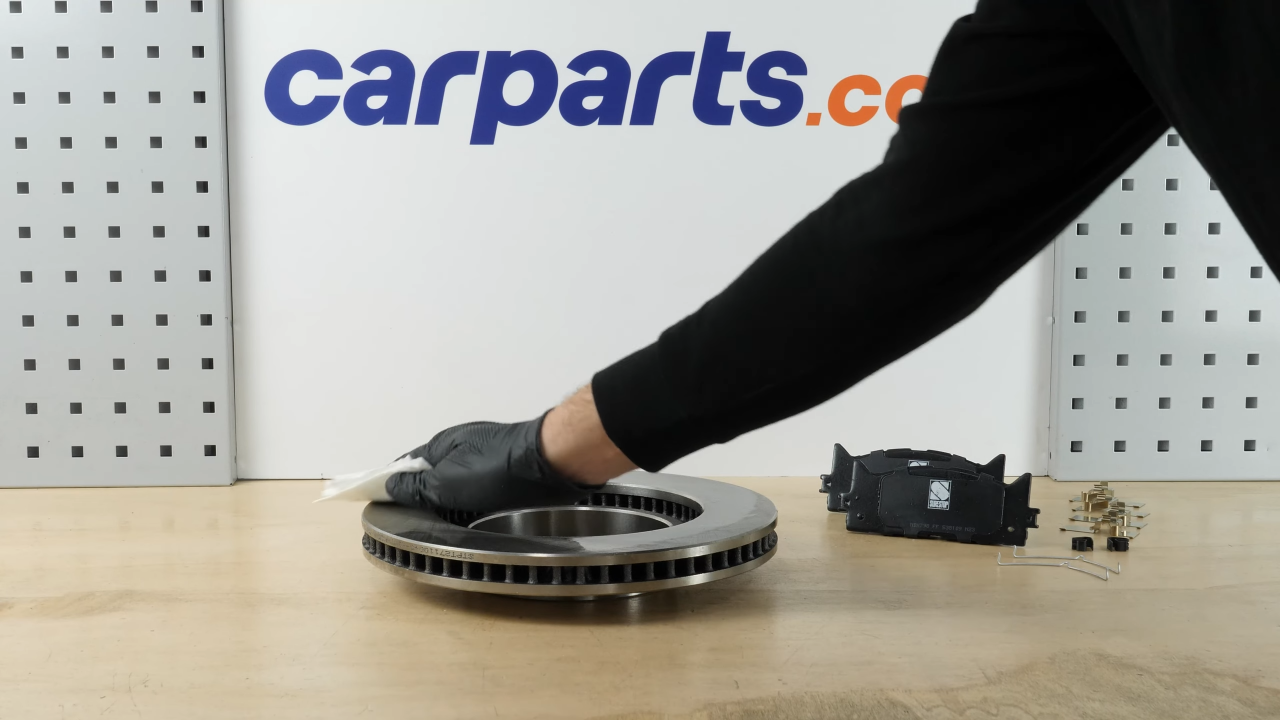
Chapter 10:
Install the new brake disc
Step 1/1
Put the new brake disc in place.
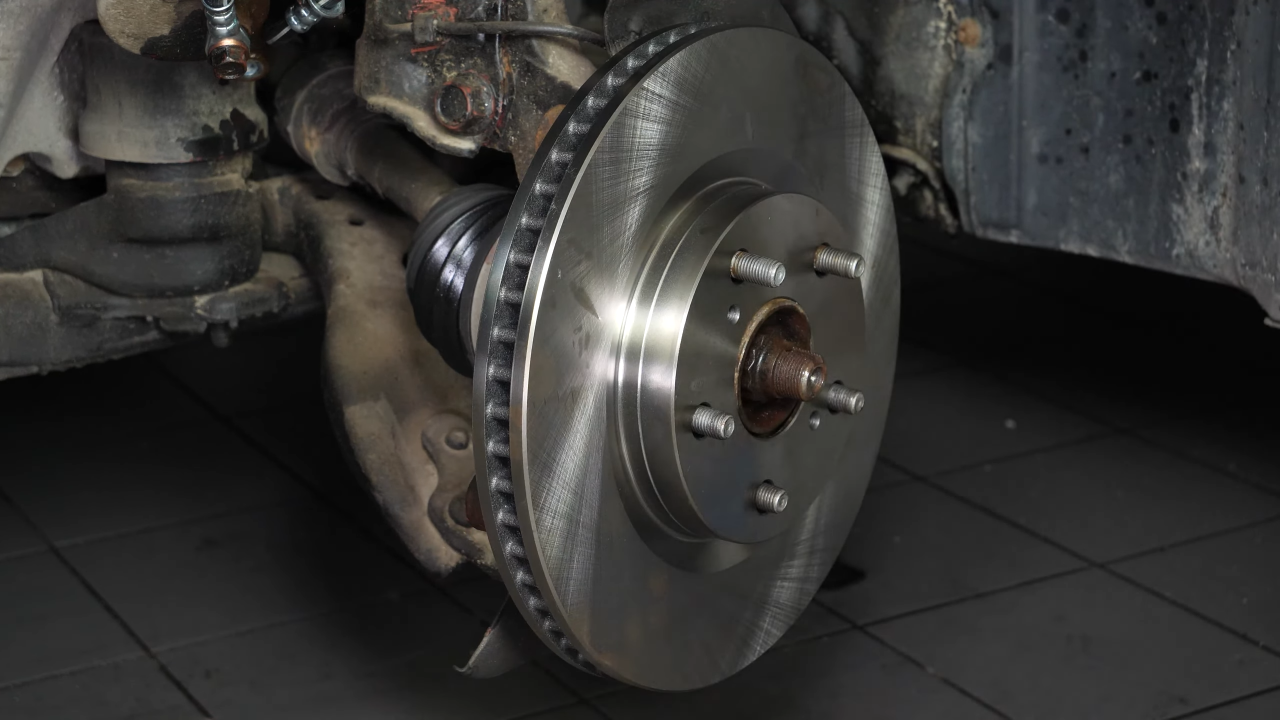
Chapter 11:
Clean the brake caliper mount
Step 1/1
Using a wire brush, clean the caliper mount to remove any excess rust that could prevent the pads from sliding.

Chapter 12:
Put the brake caliper mount back on
Step 1/3
Reassemble the caliper mount by screwing first by hand, then with a socket wrench and a 17mm socket to lock them in place.
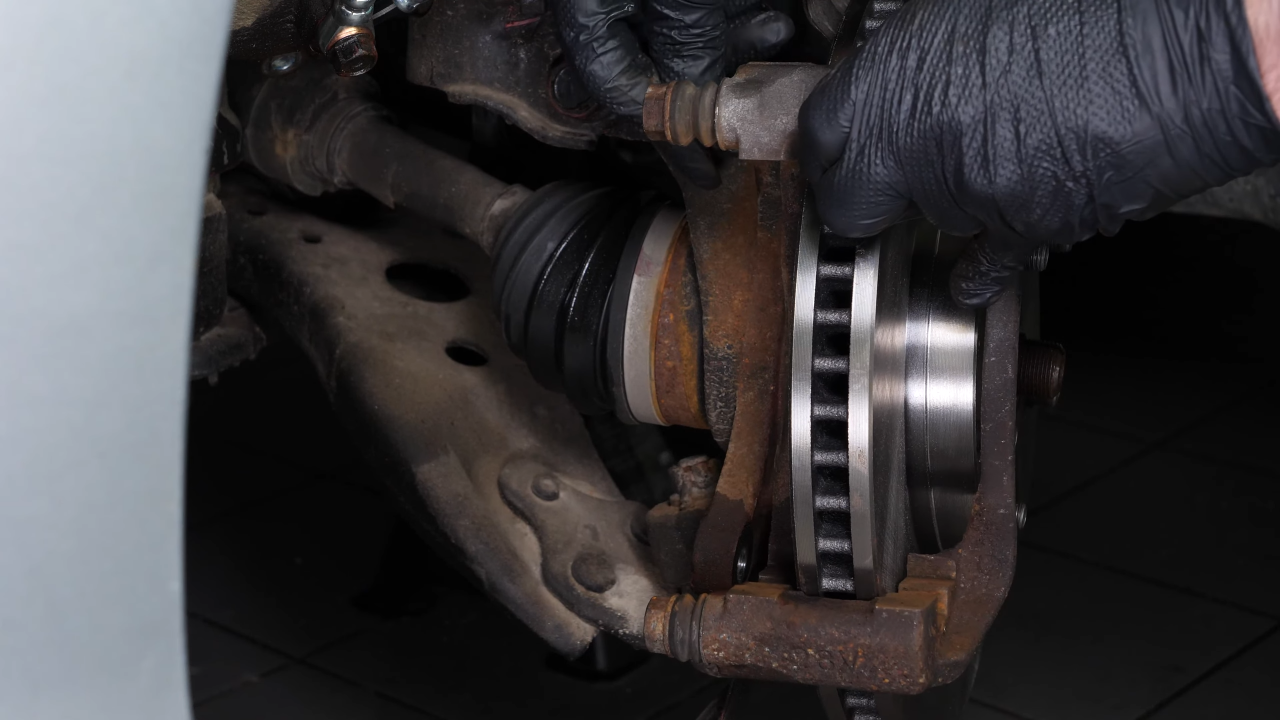
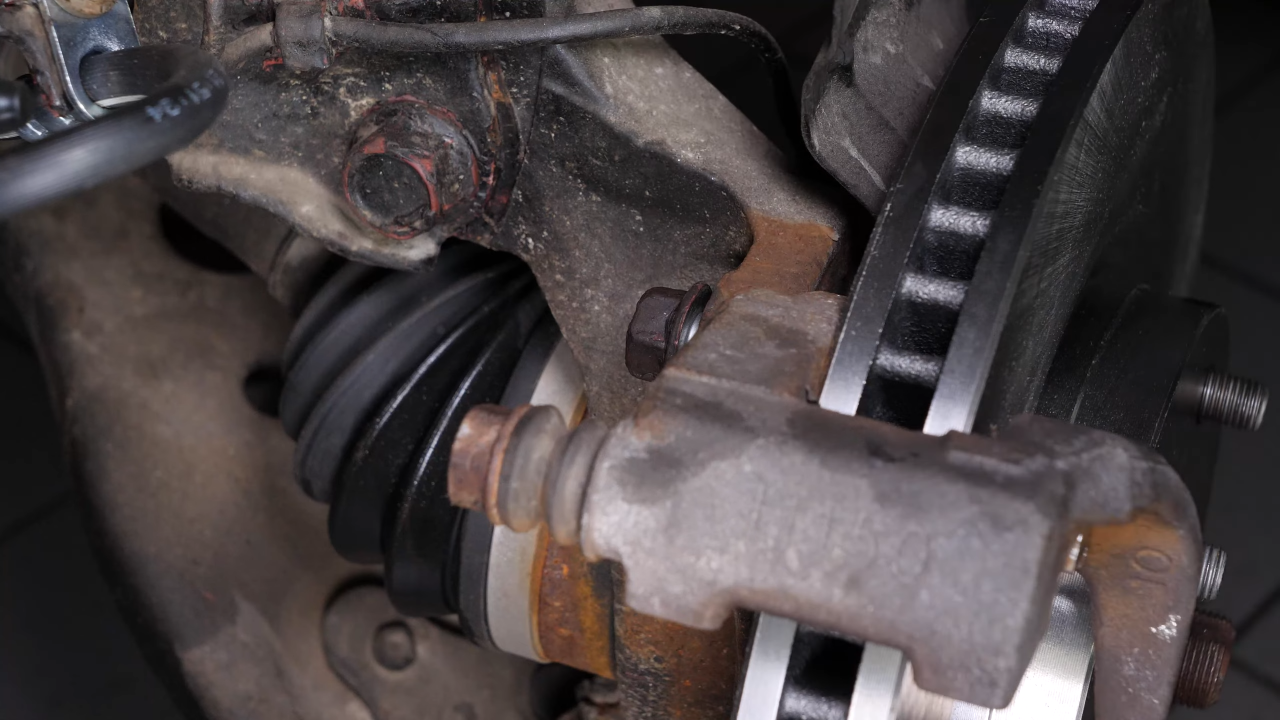

Chapter 12:
Step 2/3
Finish tightening using a torque wrench.

Chapter 12:
Step 3/3
You need to check the sliding of the brake caliper slide pins and the condition of the Caliper slide pin boots.If they look worn, you are advised to replace them with new ones.

Chapter 13:
Install the new anti-rattle clips
Step 1/1
Get hold of the anti-rattle clips supplied in the kit. Place the new anti-rattle clips on the caliper mount.
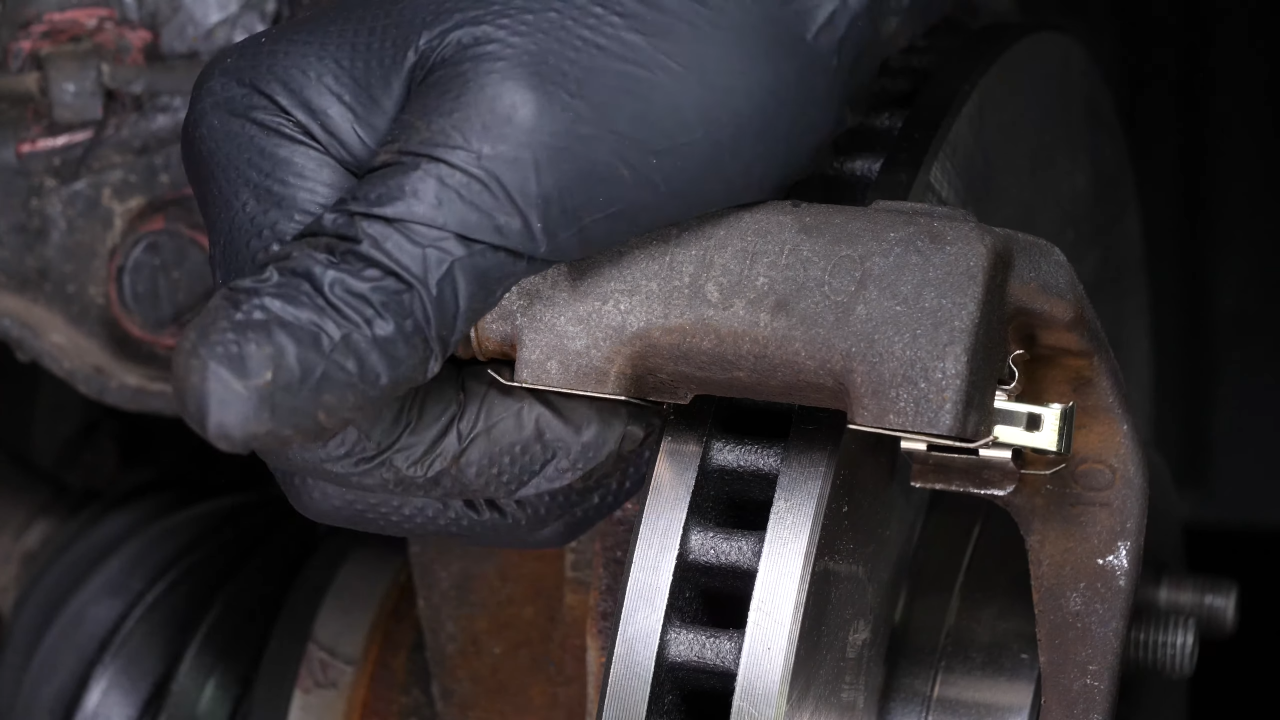
Chapter 14:
Place the new brake pads
Step 1/3
Grab the new pressure springs, and install them in the lower part of the brake pads. Lightly coat the ends of the brake pads with copper grease to help them slide more easily.

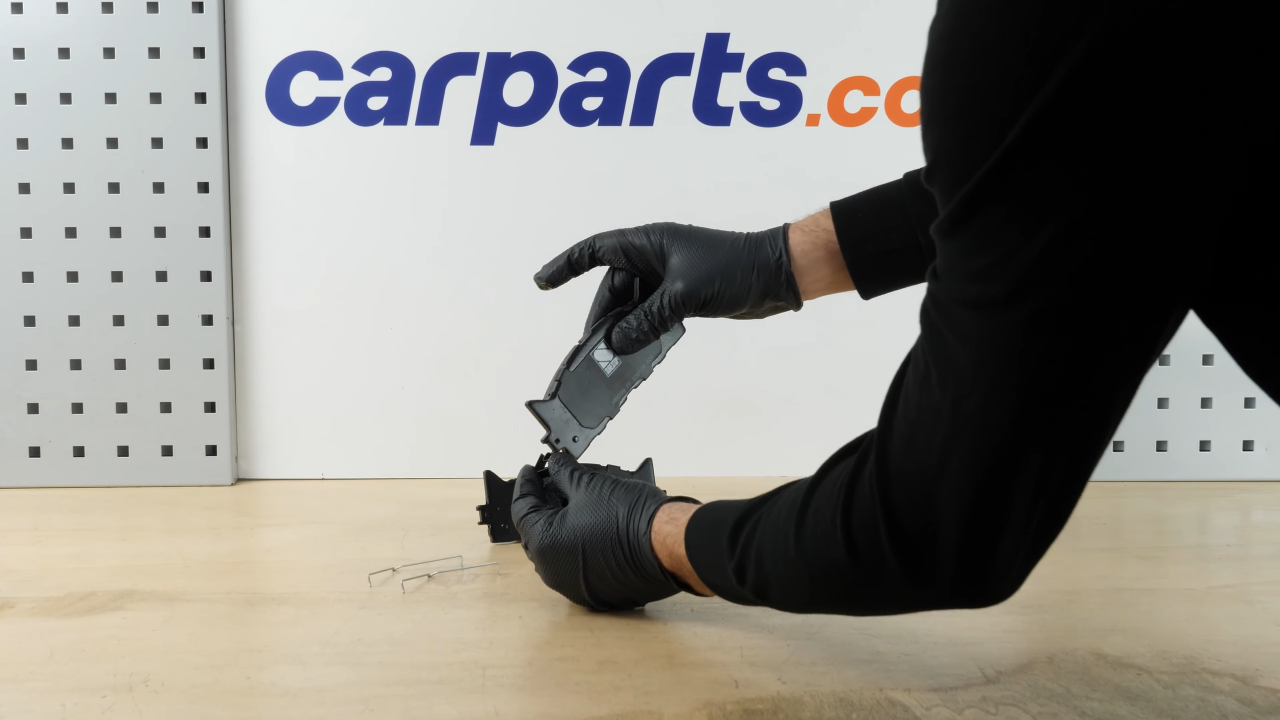

Chapter 14:
Step 2/3
Insert the new brake pad into the caliper mount by sliding it in. Then press on the pressure spring to put it firmly in place.
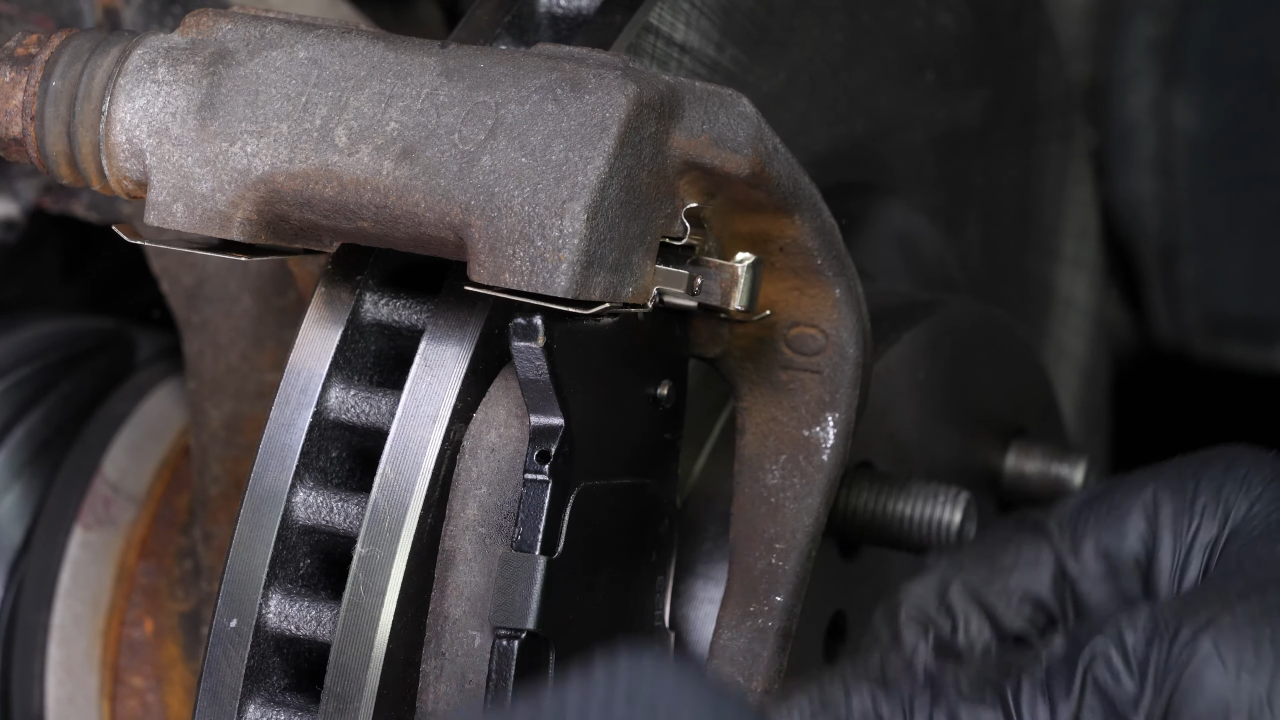
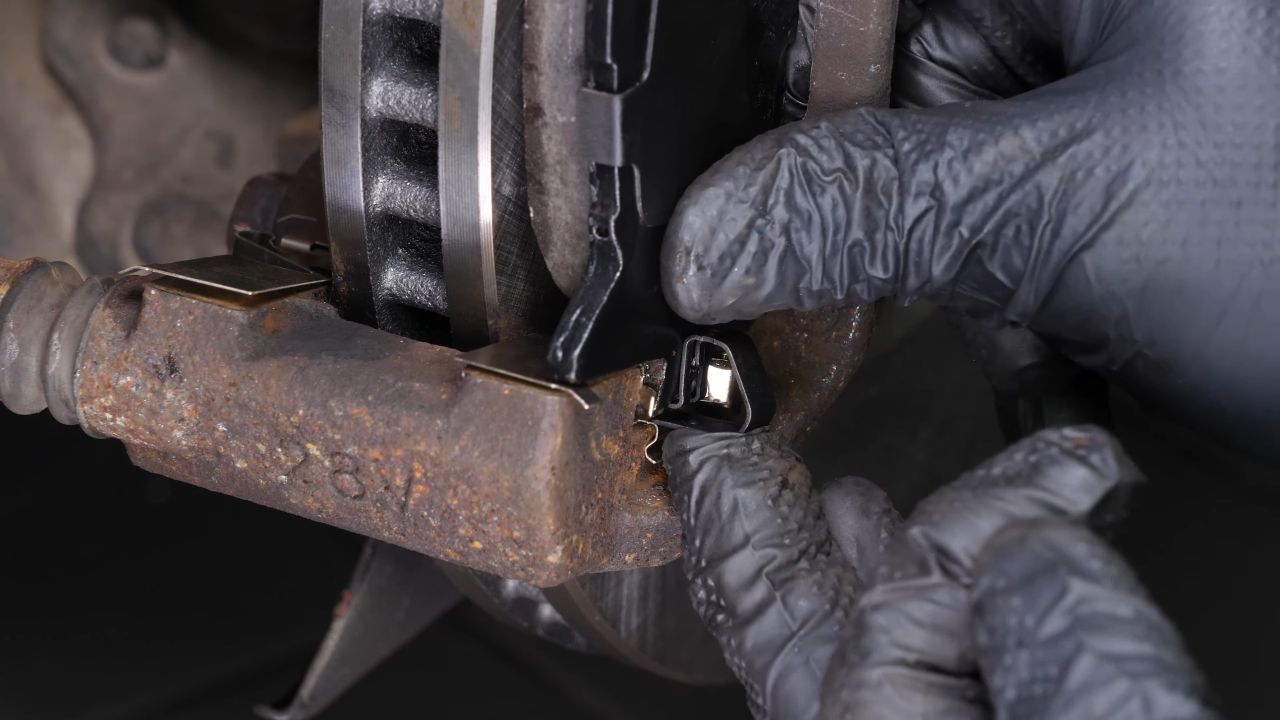
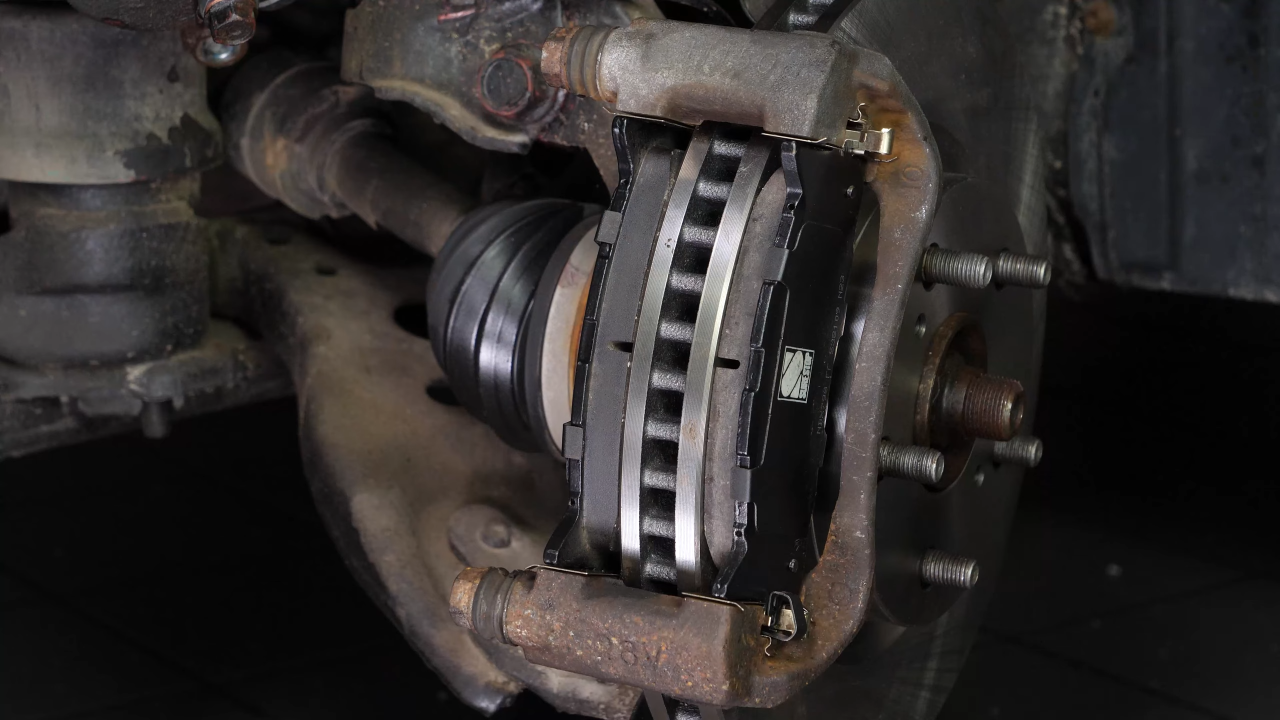
Chapter 14:
Step 3/3
Install the new upper pad retaining clip.

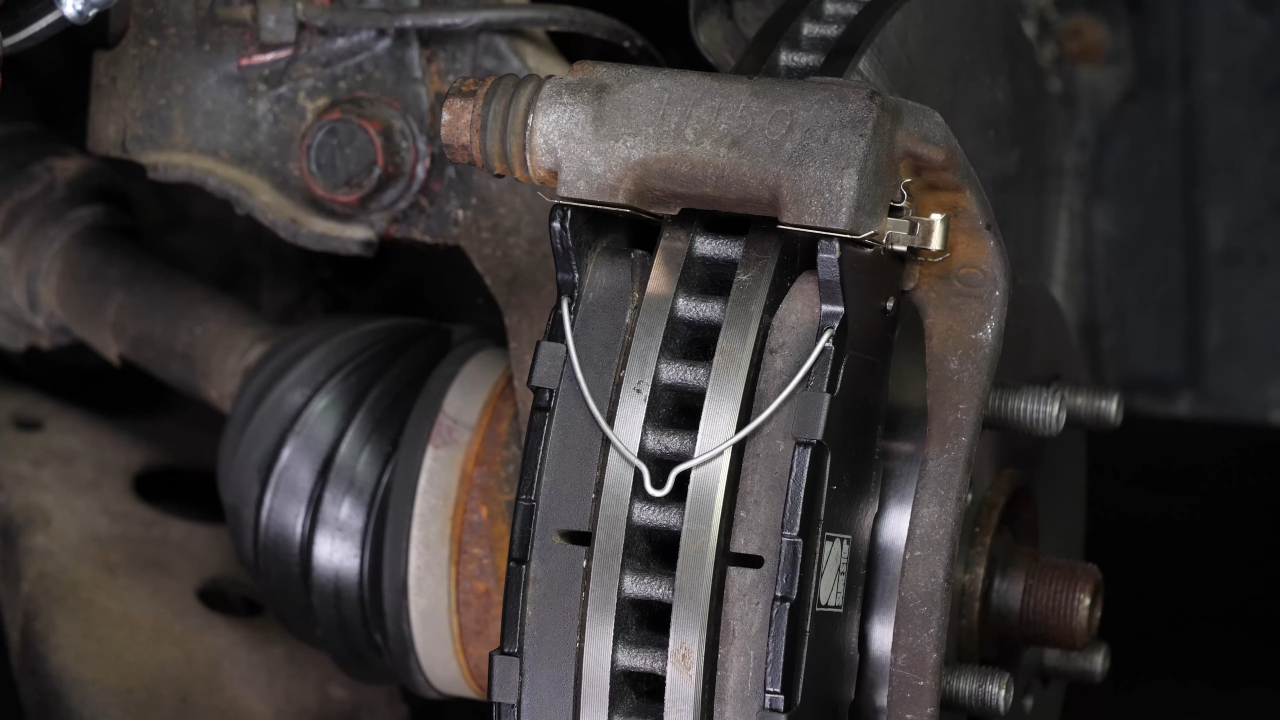
Chapter 15:
Put the brake caliper back
Step 1/5
Grab the brake caliper.
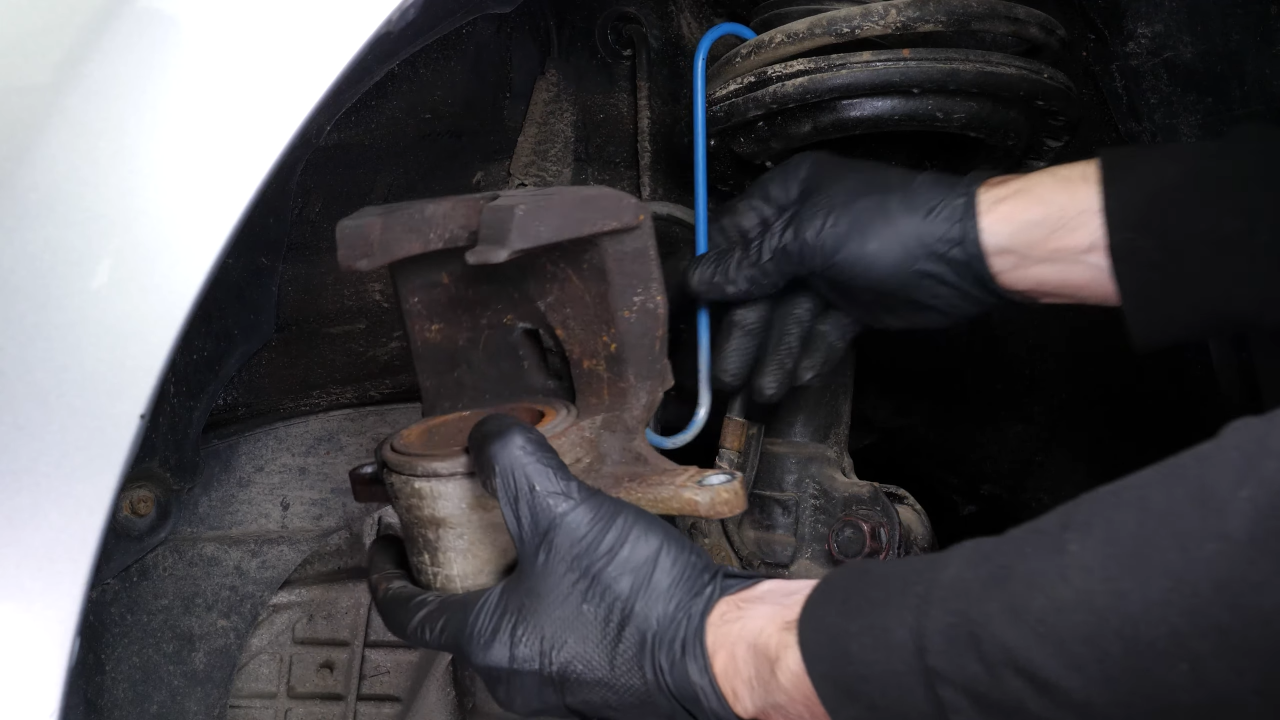
Chapter 15:
Step 2/5
Install the lower pad retaining clip.
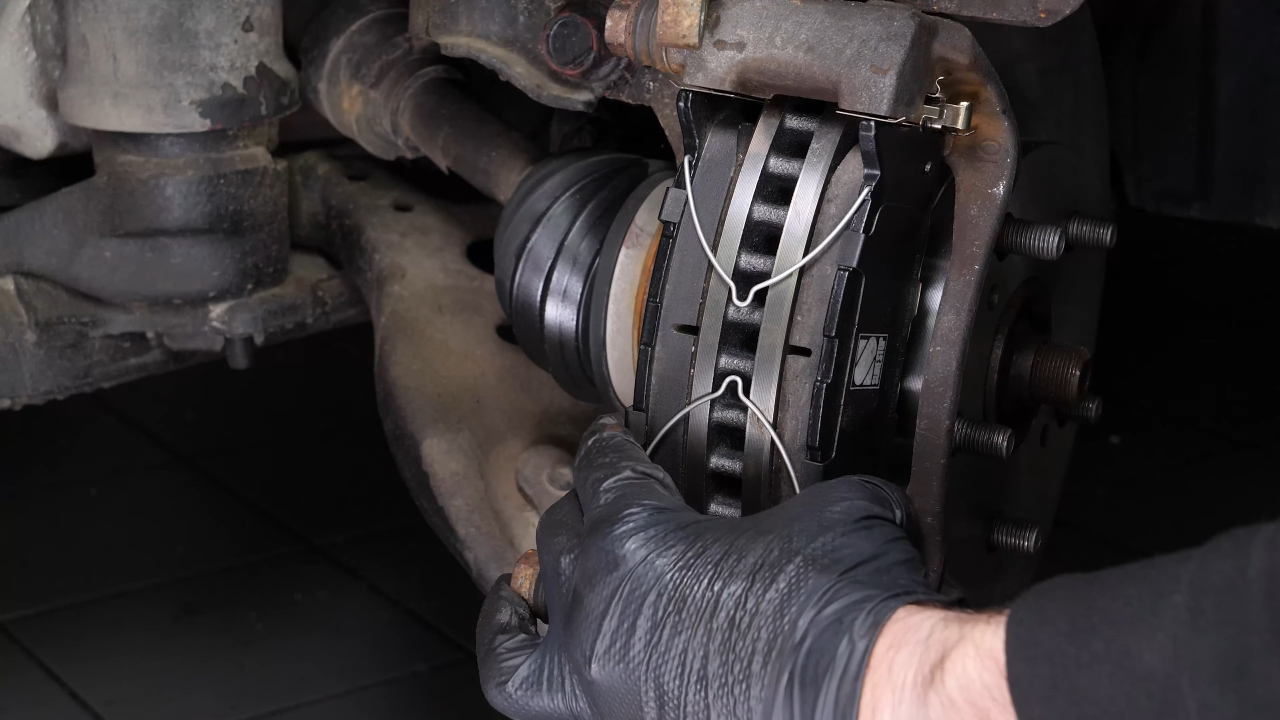
Chapter 15:
Step 3/5
Put the brake caliper back in place and screw in the slide pins, by hand at first.
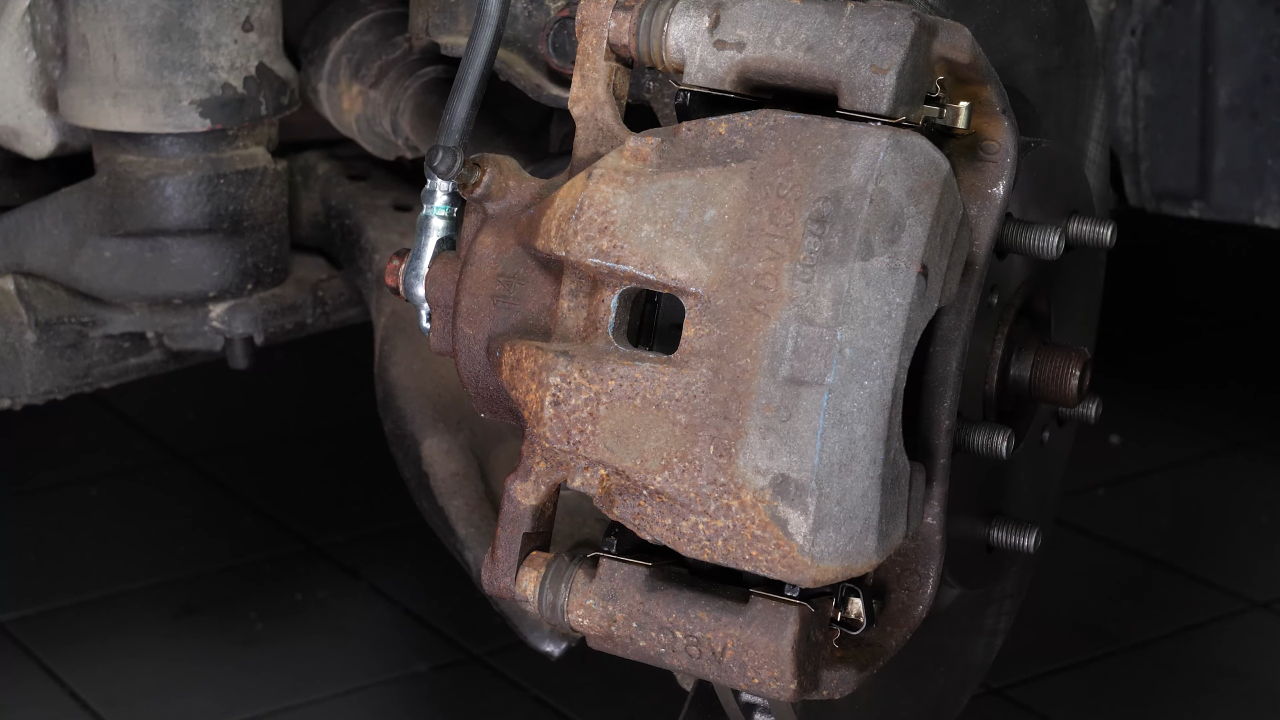

Chapter 15:
Step 4/5
Screw them in using 14mm wrench. You can use a 17mm wrench to prevent the bolts from rotating.


Chapter 15:
Step 5/5
Finish tightening using a torque wrench.
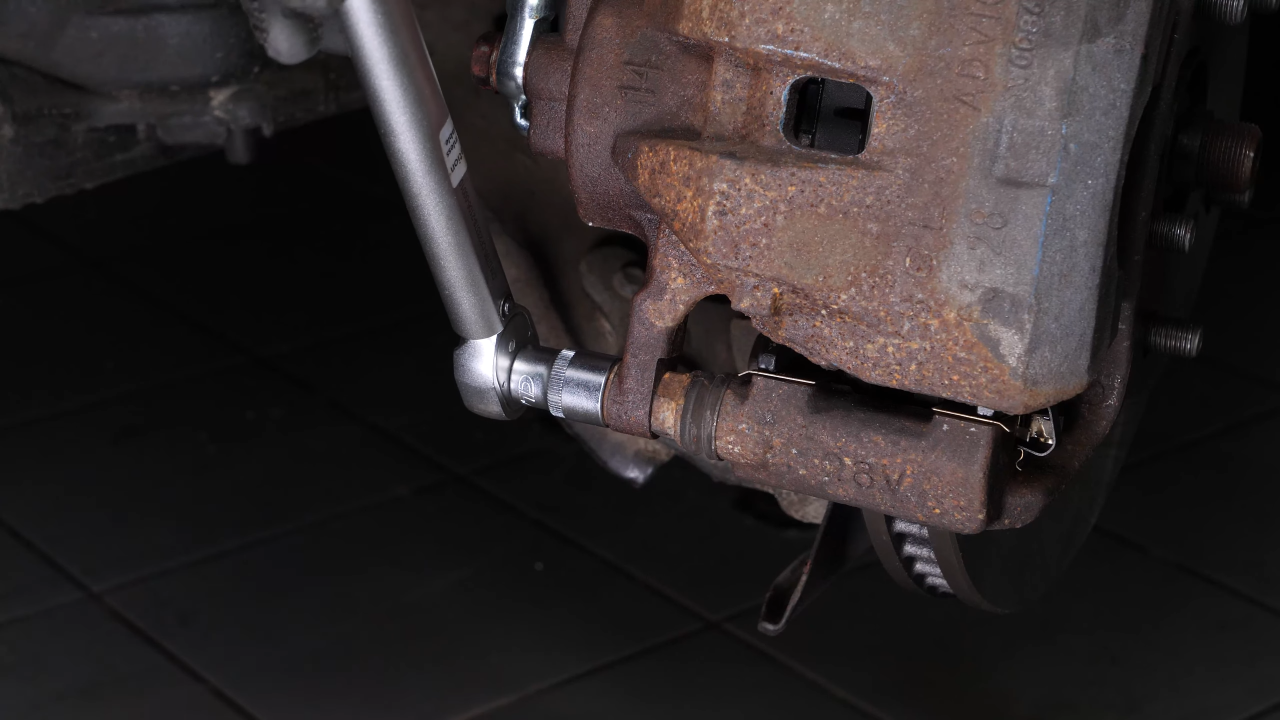
Chapter 16:
Clean
Step 1/2
Don’t forget to remove the cable that you used to hold the caliper.
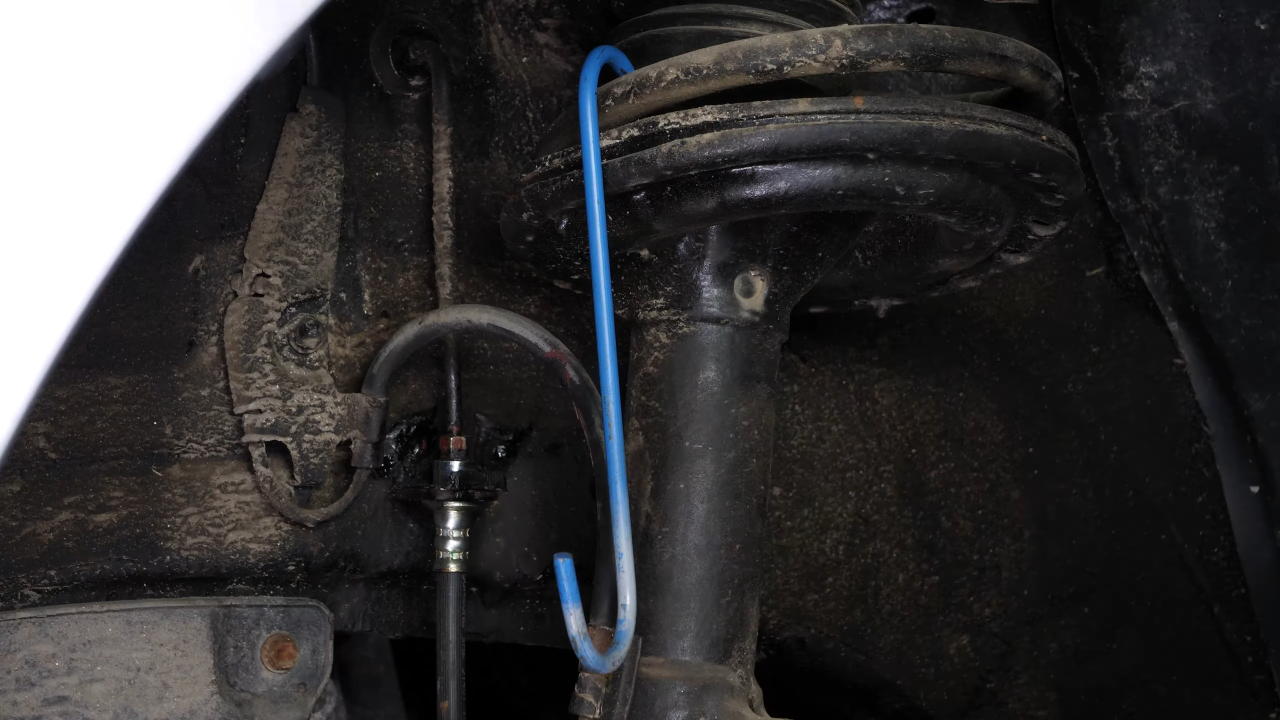
Chapter 16:
Step 2/2
Clean both sides of the disc with brake cleaner and a cloth to remove the grease from the new pads.
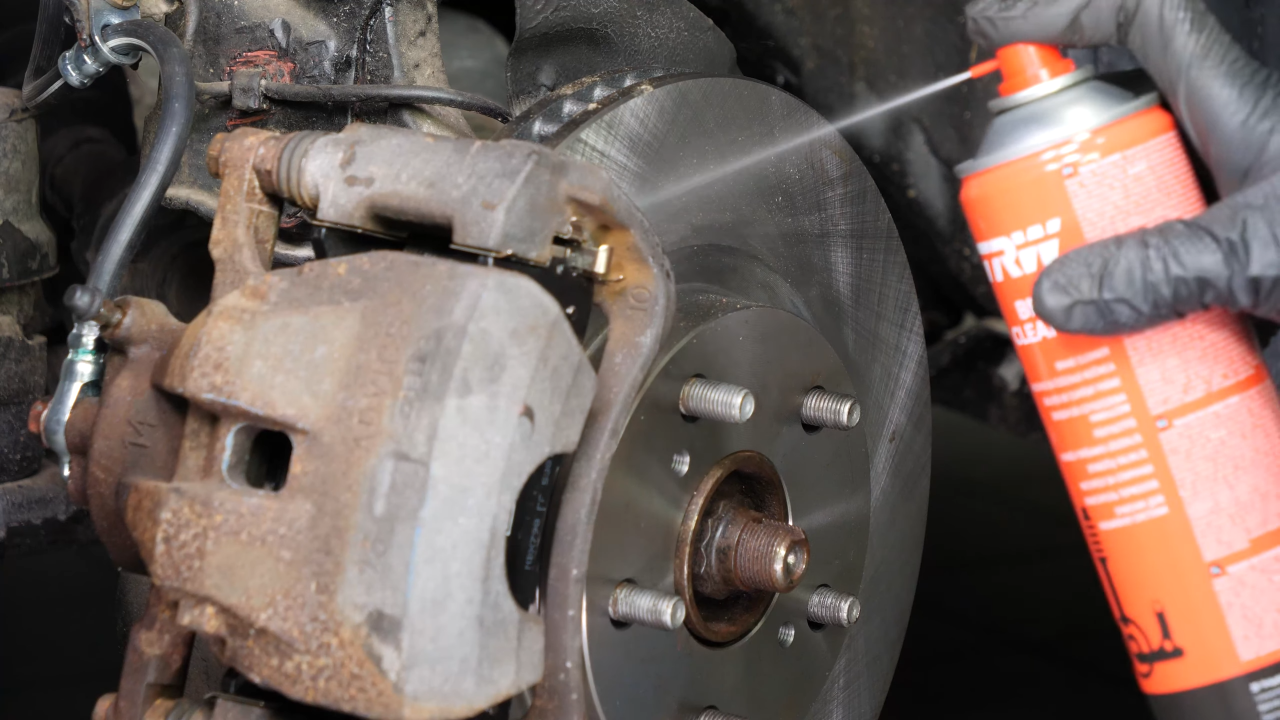
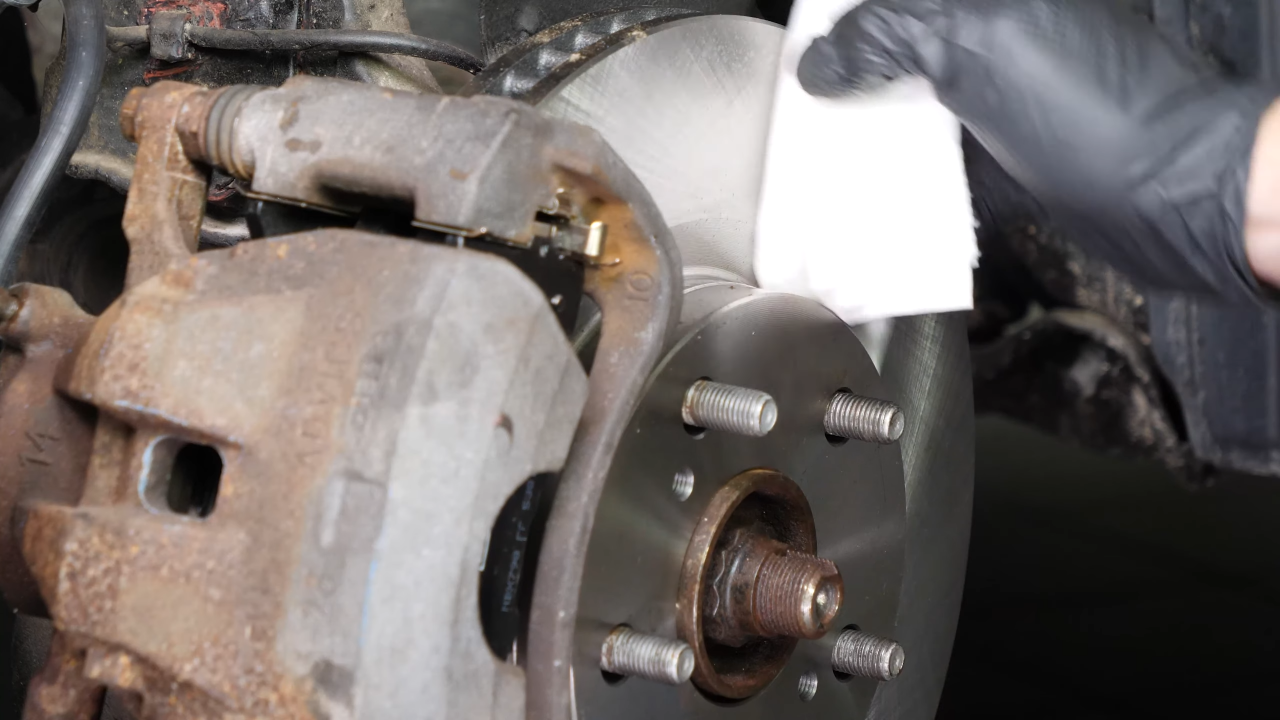
Chapter 17:
Passenger side
Step 1/1
You can now repeat the same process on the other side.
Chapter 18:
Finalise the reassembly
Step 1/3
Then, you will be able to put the wheels back on your vehicle.
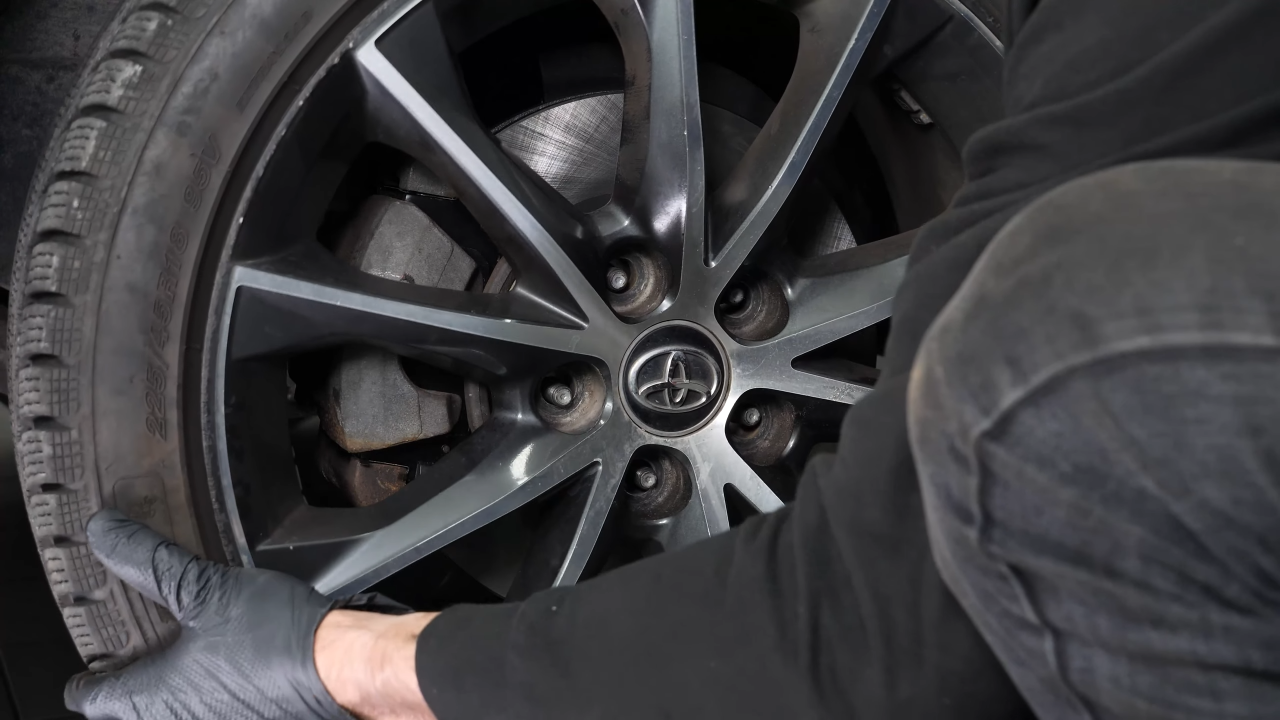

Chapter 18:
Step 2/3
Put the car back on the ground and block the wheels properly.

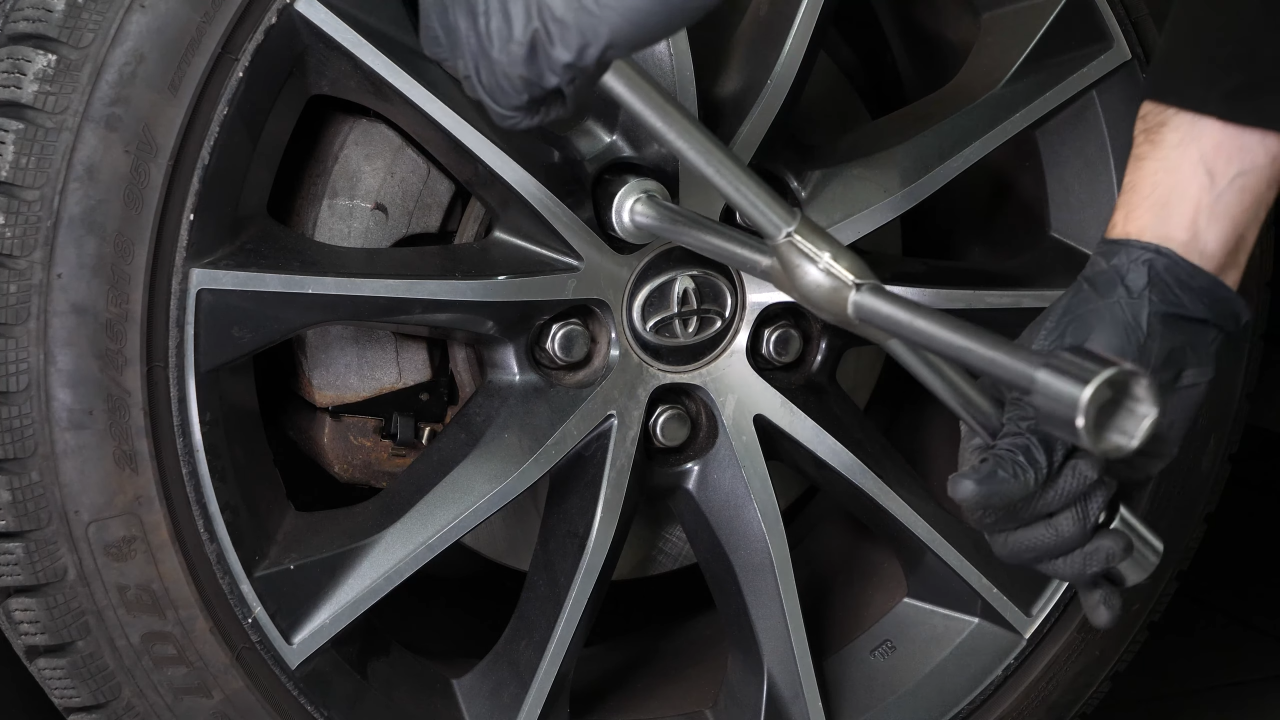
Chapter 18:
Step 3/3
Don’t forget to screw the brake fluid cap back on before starting the car.

Chapter 19:
Pump the brake pedal
Step 1/3
Attention! Before using your vehicle again, start your car, and pump the brake pedal a few times to push the brake pads together again.


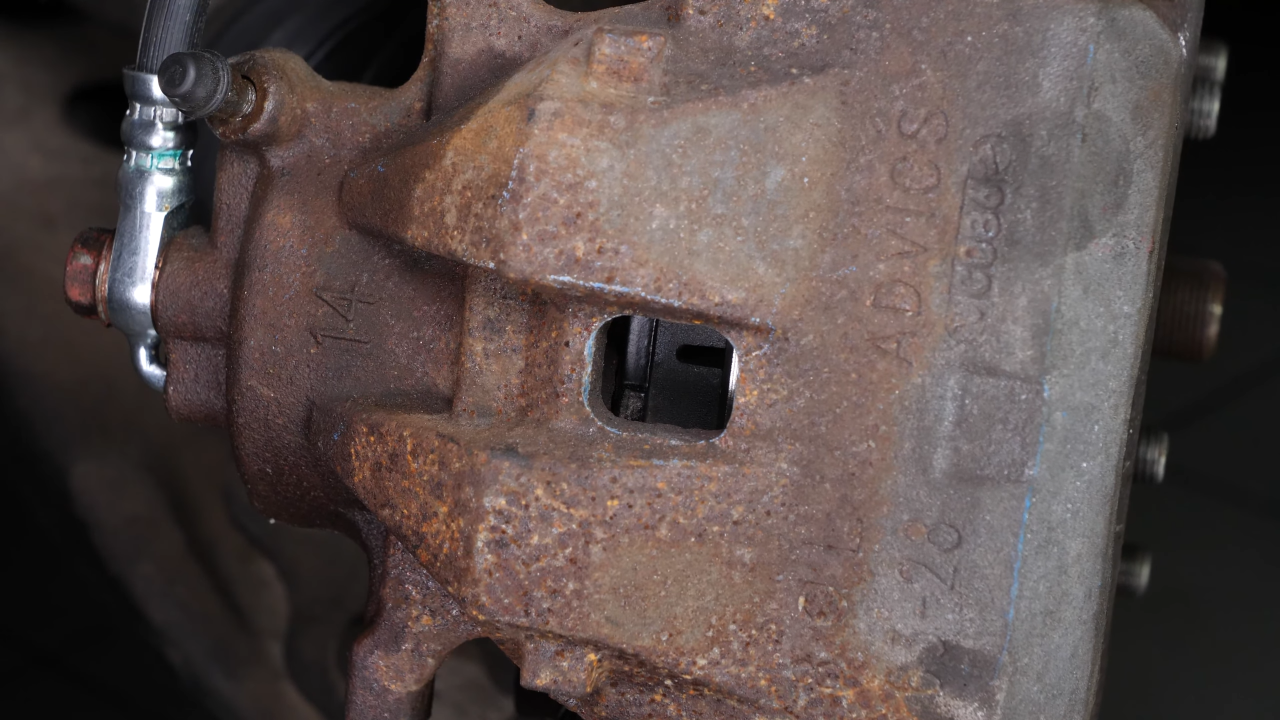
Chapter 19:
Step 2/3
Try to drive smoothly and avoid sudden braking for the first 30 miles or so, to avoid glazing the new pads.
Chapter 19:
Step 3/3
Operation complete.